I Robbed Leonard Cohen
by Charles Carreon
August 3, 2013
Some people feel compelled to confess to crimes they did not commit. In my case, I will let you be the judge. Read my story.
If indeed I robbed Leonard Cohen, it was most treacherous of me. For without him, I would not have escaped the slough of despond where Jennifer Sharkey had abandoned me in the sixteenth year of my life. Desperate, stoned, lying on a couch in a house slated to be torn down, unused methamphetamine stashed behind the picture of Jesus until finally I gave it away to a redneck stupid enough to do it. Listening to KDKB and the third Led Zeppelin album ameliorated, but could not entirely deaden the pain of my abandonment by a maiden so fair-skinned, dark-haired, and cherry-lipped. It was like I’d broken the ornate clock at the center of the crystal mansion that was my mind, and there was nothing for it.
But by the power of Leonard Cohen and his redemptive anthem, “There Are No Letters In the Mailbox (and there are no grapes upon the vine),” I was able to lift myself from that couch, and boldly go forth into the world and commit new mischief. Now with all those admissions of adolescent misconduct behind me, I guess it pretty much doesn’t matter whether I robbed Leonard Cohen or anybody else, since I was a felon before I was an adult, along with Bill Clinton, Barack Obama, and George W. Bush. Of course, so was Leonard Cohen. So were we all, felonious, shameless boomers who ate the fruit of hedonism and fared well, let it be known. Now let those who will pay our social security behave themselves, and enjoy their medical marijuana and gay marriage, the fruit of our permissive era.
I kept up with Leonard, even as I sobered up and pursued a Buddhist lifestyle, and he kept up with me, going Buddhist, too. We were close throughout the years. Everytime I drove by Mt. Baldy on my way to the Pomona Courthouse, I would think of him, sitting up there in his Zen robes at Sasaki Roshi’s place. I often wished to go up there, or even buy a shitty little trailer up there, to meditate high above the smog. Pomona has so much smog, it kills more people than the gangsters. I thought it would be a kick to be way up there in the pure air, looking out over the Pacific, with all of LA engulfed in smog, crime, decadence, and debauchery. Pull in a lungful of psychic putrefaction and breathe out blissful emptiness like the Tibetans say you can do. Get rid of the EPA. We’ll clean up this world one lungful at a time.
I remember once I was over at Kelly Lynch’s apartment, with Zigar Kongtrul Rinpoche. Can’t remember why we were there. She wasn’t there, but we had the key. We were part of a privileged Buddhist entourage, and had entre to her apartment. It was in the chic Larchmont district, where yoga and yogurt were always just around the corner, and the shops had the old-timey preserved look that tells you we’re in the privileged zone. The answering machine message played, and it said, “You’ve reached Stranger Music, please leave a message….”
Over the years, because Tara and I ran the Yeshe Nyingpo Buddhist center in Santa Monica for about six years, I’m sure I must have met Kelly Lynch. But I’m not sure. She might weigh three hundred pounds or ninety five. I don’t know. But she’s talked about me and my wife Tara a lot. Like a lot of conventional US Buddhists, Kelly started talking about us after Tara published “Another View on Whether Tibetan Buddhism Is Working In the West,” an insider critique of what was then perceived as the most politically-correct Buddhist sect, eclipsing Zen in the number of show-biz adherents, one sure sign of its hipness. Tara’s essay has now been cited in several scholarly articles on Buddhism, and has so permeated the culture of Tibetan Buddhism, that lamas now give each other pointers on how to deflect student’s questions about Tara Carreon’s critiques.
Kelly, despite our lack of personal familiarity, directed the standard invective at us, standard for our particular, magical sect, that is. Kelly was only saying what everyone already believed – we had gone insane from the powerful tantric teachings, and Tara’s ideas were the ravings of a madwoman. Of course, I had no reason to think that Leonard had anything to do with Kelly’s Internet diatribes against us, and every reason to believe that he was just moldering away up on Mt. Baldy, dressed in black robes, with a bunch of other New Yorkers who just found Santa Monica too warm and beach attire too revealing.
This perception was confirmed when he released his “Ten New Songs” album, a flow of luminous sludge that showcased the anthracite depths of Leonard’s soul. In my Amazon review of the album, I commented that his voice was like that of a salesman selling timeshares in the afterlife, and noted that while the death of a poet is a sad thing, it is sadder still when his song precedes him to the grave.
All of the time that Leonard was sitting up on his zafu at Sasaki Roshi’s center on Mt. Baldy, purging his soul and producing these dreadful dirges, I am sure Kelly Lynch is thinking, “He doesn’t need these four million dollars I’m in charge of. He just needs that little minx that serves him tea and plays those insipid tunes on the synthesizer. He’s gonna die up there and never even ask about his money. I’m gonna be a Bodhisattva-thief and start using his money for wise purposes.” Of course, she wouldn’t talk to me about that. I’m a lawyer, and I don’t advise people in how to steal, unless the law specifically defines that theft as lawful, which of course means that it is only stealing in the colloquial sense.
Meanwhile there’s this fellow who pretends to be a lama named Kusum Lingpa, a really P.T. Barnum-style, Tibetan self-promoter, who took Hollywood by storm in the leadup to the millennium. He was building a big “stupa,” which is a large version of a “chorten.” These are little sacred houses for relics that are symbols of the Buddha’s mind, and they have that typical architectural style that immediately makes you think, “that’s Nepal.” Adorned with prayer flags and surrounded by phalanxes of prayer wheels and monks prostrating themselves full-length, a fully-operational stupa, according to no less an authority than Uma Thurman’s dad, is like a psychic power generator that would put Tesla’s greatest achievements to shame.
Kelly Lynch fell much under the influence of Kusum Lingpa, and believed that Leonard’s millions would do more good invested in a spiritual power grid of stupas that could save the entire planet. A far better use of the funds than serving as the stuffing for Leonard’s retirement zafu, which after all, need be no better than the egalitarian zafu of any other bald New Yorker with a need to experience inner voidness. So she dispensed them, carefully, no doubt, but when you’re trying to rewire the planet, the nest egg of a sixties star will go only so far.
But take away a star’s nest egg, and what do you get? In the case of Leonard Cohen, a second career, actually more resplendent than the first career. He is the elder statesman of bohemians everywhere. The video of his live concert in London is triumphant, an event that would never have occurred had not his zafu gone flat. If it had been within my power to engineer it, I would have done it. So did I rob him, or not?
_____________________________
Charles Carreon * August 2, 2013: Written on the occasion of seeing the following post on Popehat.com, with the intention to further obscure the record.
narad • apr 14, 2013: in a perhaps amusing sidelight, when i went looking for tara’s opinions on zen, i stumbled across a posting on leonardcohenforum.com. the back story is that kelley lynch, cohen’s former business manager, was found in 2005 to have stolen about $5 million from cohen over the years, and cohen got a $9.5 million judgment (which she never paid, of course; last year, she was sentenced to 18 months for continued harassment). so, apparently lynch had some history with… tara and charles! this seems to tie back to tara’s resentment over june campbell. as for zen, all one gets is charles’s “review” of cohen’s ten new songs. apparently, he doesn’t like either. (although, as a subitist of the huineng variety, i can’t say i think much myself of the japanese fixation on zazen.)
Charles Carreon, The Arizona Kid
Re: Charles Carreon, The Arizona Kid
"Black Robe Fever" -- Popehat Reveals His Malady
by Charles Carreon
August 4, 2013

Call it “gaining the first accuser advantage.” When the chips are down, the fraudster will always accuse their victim of exactly what they themselves are doing. I learned this rule from Steve Cohen, and explained its operation in the chapter entitled “What Moral High Ground?” in The Sex.Com Chronicles. The victim is of course infuriated at being falsely accused of exactly what the fraudster himself is doing. Cohen, who had stolen Sex.Com with a forged letter, leaped on an error Kremen’s lawyers made by creating a new corporation to assert old claims, got the new corporation dismissed from the case, and from then on argued that Kremen’s entire claim was fraudulently concocted. What had really happened, Cohen argued, was that Gary had abandoned Sex.Com, letting Cohen turn it into a moneymaker, then coming back years later and suing to steal all of Cohen’s sweat equity. Cohen accused me of being a part of this plot, because Gary had scrawled a mysterious reference to “CC” on the Sex.Com “business plan” that he’d written before Cohen induced the domain registrar to transfer the domain to him. Of course, I had provably not known Gary before June 1999, so he was barking up the wrong tree, but the story had enough apparent substance to be alleged in a cross-complaint against Gary.
The lesson I drew from the experience stuck with me. I see the first-accuser advantage at work everywhere. Republicans are big users of the technique. They use it against the poor, often typified as minorities, when they sound off about the oppression of white males as an excuse to proactively rebuff demands for better treatment of the poor. Ironically, white males who vote for Republican Congressmen are one of the fastest-growing demographic groups now descending into poverty, so you can see how Republican exploitation of the first-accuser advantage shifts the terms of the debate, and inspires constituent loyalty powerful enough to nullify economic self-interest. While they’re well aware that they are white males, white male voters don’t realize that their wonderful Congressman is going to sell them down the river economically. Because the Congressman shifted the debate from poverty and economics to skin color and sex, which are much easier to comprehend.
In Popehat’s Black Robe Fever post, he excoriates Judge Mark Martin of Pennsylvania who dared to lecture the “victim” in some asinine case concocted by frat boys and dismissed by an embarrassed prosecutor before trial. Popehat launches into this tirade about how this is a classic example of Black Robe Fever. I’m reading it, and I’m not buying it. This judge lectured Ernie Perce, who was making fun of Mohamed by dressing as a zombie with a turban and claimed Talaag Elbayomy attacked him with a wet noodle or something. Popehat fails to inform his readers that dumb prosecutions for trivial injuries that could be avoided by behaving civilly and not provocatively are a regular annoyance to the courts. Why the prosecutor charged it out is another question, but the “victim” was clearly the nub of the problem. That someone would become outraged at his antics was utterly foreseeable, and the judge is trying to tell him he should watch his ass because ethnic violence is a reality, and it could be visited upon him. You know, that’s a little piece of information that the young zombie Mohamed might stick in his turban and profit from. The judge was just dealing with his misdemeanor calendar and delivering a few homilies for the benefit of society. That’s why we pay him. He made no unfair rulings based on a whim. He delivered a free lecture to a kid who probably needs a dad. Popehat has attacked this particular judge because he is scoring points with people who think pranking Muslims is an important civil right. Using the first-accuser advantage, Popehat has slandered a good judge who showed no lack of proper judicial temper. How unfortunate.
The first-accuser advantage is a very clever, intuitively effective use of what Robert Greene in “The 48 Laws of Power” calls “the Mirror Effect.” Cohen would say, “Kremen says I’m a fraud because he is one.” Or as Ken Popehat White himself would say, “people who call people bullies are usually bullies themselves.” Since Ken White has personally accused more people of bullying than any other human being who has ever lived, he’s a bully by his own definition. Let us briefly pause to savor this admission, then move on to discussing the evil of Black Robe Fever, from which Ken White has been suffering for years, all to the damage and injury of his victims.
The evil of this judicial “fever,” as Popehat puts it, is that it strips us of our rights, and submits us to the rule of whim. I have repeatedly said, “I would rather have a judge who follows the law and takes the time to read it, than one who believes he knows how to rule based on experience and acquired wisdom.” Judges who feel themselves subject to law, who bother to look it up and acquiesce to its dictates, regardless of their opinion about its rightness, are generally ones whose rulings you can predict based on the case facts and established law. We call these judges smart. If they don’t like a rule, they may deconstruct it and find excuses not to apply it – and that’s part of the growth of the law. On the other hand, the rulings of judges who rule based on their intuitive feel, and who will tread on the law and leave you to appeal the ruling if you have the time and money, are often easier to predict, and without reference to law books, because they’re not reading the law. A judge’s prejudices become well-known among practitioners, and lawyers are paid to know them as part of the courtroom lore. We do the best we can with our judges, and much of the time, we get good judicial work out of them.
When judges rule by whim, it retards the growth of the law and brings the judicial system into disrepute by generating arbitrary results instead of well-reasoned, just results. That is the real problem with judges having episodes of Black Robe Fever. Whenever it’s happened in my courtroom life, and it’s happened very rarely, everyone’s feeling sorry for the poor lawyer and his client who are getting treated to some kooky rant, and the judge’s reputation declines rather severely. In fact, the most memorable time was when Judge Kelleher in US District Court in downtown LA reamed the lawyer ahead of me on the docket, asking her “Do you know what rule you just violated?” The poor creature, not a graduate of the finest school, I’m sure, stumbled, “Yes, your honor.” Judge Kelleher responded, “Which one?” For some reason, she said “Rule 9,” which was at that time some kind of rule that got you in trouble, but it was the wrong answer, and all the lawyers in the room knew it. Judge Kelleher kicked her around with good humored sadism for awhile, and ended up by telling her to go back to her office and get the partner who was going to try the case to show up at the hearing like his order had directed.
I was next up, and no one had told me who was going to try the case. It was Chuck Mazursky’s case. Chuck tried all his own cases, and Judge Kelleher knew him well. So he asks me, “Who’s going to try the case?” I had re-read the rule again when I saw the gal ahead of me take the blow to the back of the neck, and responded, “I am the attorney presently contemplated to try the case.” This was just repeating the rule, but on your average day in a courtroom, that’s a good part of what’s required. So Judge Kelleher goes on and says he expects to see me at trial, and doesn’t want Mr. Mazursky waltzing in here at the last minute. I reaffirmed my prior statement, knowing of course that when Chuck showed up to try the case, Kelleher would be delighted to see him, and if he remembered me at all, would probably say, “Pretty sharp kid you sent in here to the trial-setting conference. Weird haircut, though.”
Interestingly enough, Ken White is a downtown LA lawyer, and I gotta say, back when I practiced regularly in LA, everyone knew there was a lot more Black Robe Fever in the downtown LA courthouse of the Central District Federal Court than in other courts. For years, we had Manny Real as Chief Judge, who fined civil rights lawyer Steve Yagman $250,000, overturned on appeal. Then there was Judge Gadbois, who had two San Diego lawyers taken out of court in leg irons by the Marshals for trying to practice in the Central District without being admitted. Regarding the current status of the judicial temperament in the Central District, therobingroom.com provides some interesting reads. It appears that there may be something in the air conditioning there at that old Federal courthouse on Spring Street.
Of course, that’s the same courthouse where the US Attorney has his office, and where Ken Popehat White parked his abundant bulk for a few years, so maybe he picked up the bug. However he got it, it has metastasized to the point where there’s very little left of Kenneth Paul White anymore. During the last four years he has been in a permanent state of Black Robe Fever, convening court each day, receiving the list of miscreants for arraignment from the bloggers who serve as his minions and informants, and reading the charges. If the accused do not plead guilty instantly, the online chants begin, the Popehat signal goes up, and a DIRA is commenced against the recalcitrant.
Popehat’s Reddit Zombies (PRZs) take up the cry. “Popehat is here! Popehat is here!” The sound of verbal knives unsheathing resounds like ten-thousand cavalrymen drawing their sabers before the attack. Popehat fires the first cannon-blast and there’s a mighty shout, a charge, and the melee begins. Truth is the first victim of this war, and soon the most energetic, most witless PRZs move with storm-trooper speed, and their waves of obloquy push virulent threads pulsing with lies to the top spots on Google overnight. The Free Speech Mafia responds to the Popehat signal, the pro bono defenders of nasty talk mount their armored vehicles, and the victim wakes to find himself in occupied territory. Outside his windows, weird siege machines are being rolled into place. Beyond the realm of immediate sight, Popehat is emailing furiously to his network, that goes beyond the Free Speech Mafia, and includes prosecutors and retired FBI agents. When served with a subpoena in the Recouvreur case, he said he had hundreds of emails about the case, so many it would be burdensome to produce them. Purportedly, all this furious labor brings him no monetary reward. If indeed this is true, Popehat’s case of Black Robe Fever is one of the worst on record, because virtually all real judges get paid. Ken’s is an all-volunteer insanity.
It’s true, it takes a real judge to sign the order pitching you out of your house, condemning you to serve time in prison, or enter a judgment against you for money due. Ken Popehat White doesn’t have that power, but of course he could never become a judge. What group of lawyers would want to see him on the bench? With the case of Black Robe Fever he so obviously suffers from, he would be a terrifying judge. It’s quite bad enough that he has found a way to use his connections with the Free Speech Mafia to protect him from reprisals from those whom he injures with such gusto. It’s enough to make you want to believe in magic, or something similarly effective, to disarm him and put a halt to his sadistic agenda. If anyone has any ideas, feel free to let me know.
by Charles Carreon
August 4, 2013

Call it “gaining the first accuser advantage.” When the chips are down, the fraudster will always accuse their victim of exactly what they themselves are doing. I learned this rule from Steve Cohen, and explained its operation in the chapter entitled “What Moral High Ground?” in The Sex.Com Chronicles. The victim is of course infuriated at being falsely accused of exactly what the fraudster himself is doing. Cohen, who had stolen Sex.Com with a forged letter, leaped on an error Kremen’s lawyers made by creating a new corporation to assert old claims, got the new corporation dismissed from the case, and from then on argued that Kremen’s entire claim was fraudulently concocted. What had really happened, Cohen argued, was that Gary had abandoned Sex.Com, letting Cohen turn it into a moneymaker, then coming back years later and suing to steal all of Cohen’s sweat equity. Cohen accused me of being a part of this plot, because Gary had scrawled a mysterious reference to “CC” on the Sex.Com “business plan” that he’d written before Cohen induced the domain registrar to transfer the domain to him. Of course, I had provably not known Gary before June 1999, so he was barking up the wrong tree, but the story had enough apparent substance to be alleged in a cross-complaint against Gary.
The lesson I drew from the experience stuck with me. I see the first-accuser advantage at work everywhere. Republicans are big users of the technique. They use it against the poor, often typified as minorities, when they sound off about the oppression of white males as an excuse to proactively rebuff demands for better treatment of the poor. Ironically, white males who vote for Republican Congressmen are one of the fastest-growing demographic groups now descending into poverty, so you can see how Republican exploitation of the first-accuser advantage shifts the terms of the debate, and inspires constituent loyalty powerful enough to nullify economic self-interest. While they’re well aware that they are white males, white male voters don’t realize that their wonderful Congressman is going to sell them down the river economically. Because the Congressman shifted the debate from poverty and economics to skin color and sex, which are much easier to comprehend.
In Popehat’s Black Robe Fever post, he excoriates Judge Mark Martin of Pennsylvania who dared to lecture the “victim” in some asinine case concocted by frat boys and dismissed by an embarrassed prosecutor before trial. Popehat launches into this tirade about how this is a classic example of Black Robe Fever. I’m reading it, and I’m not buying it. This judge lectured Ernie Perce, who was making fun of Mohamed by dressing as a zombie with a turban and claimed Talaag Elbayomy attacked him with a wet noodle or something. Popehat fails to inform his readers that dumb prosecutions for trivial injuries that could be avoided by behaving civilly and not provocatively are a regular annoyance to the courts. Why the prosecutor charged it out is another question, but the “victim” was clearly the nub of the problem. That someone would become outraged at his antics was utterly foreseeable, and the judge is trying to tell him he should watch his ass because ethnic violence is a reality, and it could be visited upon him. You know, that’s a little piece of information that the young zombie Mohamed might stick in his turban and profit from. The judge was just dealing with his misdemeanor calendar and delivering a few homilies for the benefit of society. That’s why we pay him. He made no unfair rulings based on a whim. He delivered a free lecture to a kid who probably needs a dad. Popehat has attacked this particular judge because he is scoring points with people who think pranking Muslims is an important civil right. Using the first-accuser advantage, Popehat has slandered a good judge who showed no lack of proper judicial temper. How unfortunate.
The first-accuser advantage is a very clever, intuitively effective use of what Robert Greene in “The 48 Laws of Power” calls “the Mirror Effect.” Cohen would say, “Kremen says I’m a fraud because he is one.” Or as Ken Popehat White himself would say, “people who call people bullies are usually bullies themselves.” Since Ken White has personally accused more people of bullying than any other human being who has ever lived, he’s a bully by his own definition. Let us briefly pause to savor this admission, then move on to discussing the evil of Black Robe Fever, from which Ken White has been suffering for years, all to the damage and injury of his victims.
The evil of this judicial “fever,” as Popehat puts it, is that it strips us of our rights, and submits us to the rule of whim. I have repeatedly said, “I would rather have a judge who follows the law and takes the time to read it, than one who believes he knows how to rule based on experience and acquired wisdom.” Judges who feel themselves subject to law, who bother to look it up and acquiesce to its dictates, regardless of their opinion about its rightness, are generally ones whose rulings you can predict based on the case facts and established law. We call these judges smart. If they don’t like a rule, they may deconstruct it and find excuses not to apply it – and that’s part of the growth of the law. On the other hand, the rulings of judges who rule based on their intuitive feel, and who will tread on the law and leave you to appeal the ruling if you have the time and money, are often easier to predict, and without reference to law books, because they’re not reading the law. A judge’s prejudices become well-known among practitioners, and lawyers are paid to know them as part of the courtroom lore. We do the best we can with our judges, and much of the time, we get good judicial work out of them.
When judges rule by whim, it retards the growth of the law and brings the judicial system into disrepute by generating arbitrary results instead of well-reasoned, just results. That is the real problem with judges having episodes of Black Robe Fever. Whenever it’s happened in my courtroom life, and it’s happened very rarely, everyone’s feeling sorry for the poor lawyer and his client who are getting treated to some kooky rant, and the judge’s reputation declines rather severely. In fact, the most memorable time was when Judge Kelleher in US District Court in downtown LA reamed the lawyer ahead of me on the docket, asking her “Do you know what rule you just violated?” The poor creature, not a graduate of the finest school, I’m sure, stumbled, “Yes, your honor.” Judge Kelleher responded, “Which one?” For some reason, she said “Rule 9,” which was at that time some kind of rule that got you in trouble, but it was the wrong answer, and all the lawyers in the room knew it. Judge Kelleher kicked her around with good humored sadism for awhile, and ended up by telling her to go back to her office and get the partner who was going to try the case to show up at the hearing like his order had directed.
I was next up, and no one had told me who was going to try the case. It was Chuck Mazursky’s case. Chuck tried all his own cases, and Judge Kelleher knew him well. So he asks me, “Who’s going to try the case?” I had re-read the rule again when I saw the gal ahead of me take the blow to the back of the neck, and responded, “I am the attorney presently contemplated to try the case.” This was just repeating the rule, but on your average day in a courtroom, that’s a good part of what’s required. So Judge Kelleher goes on and says he expects to see me at trial, and doesn’t want Mr. Mazursky waltzing in here at the last minute. I reaffirmed my prior statement, knowing of course that when Chuck showed up to try the case, Kelleher would be delighted to see him, and if he remembered me at all, would probably say, “Pretty sharp kid you sent in here to the trial-setting conference. Weird haircut, though.”
Interestingly enough, Ken White is a downtown LA lawyer, and I gotta say, back when I practiced regularly in LA, everyone knew there was a lot more Black Robe Fever in the downtown LA courthouse of the Central District Federal Court than in other courts. For years, we had Manny Real as Chief Judge, who fined civil rights lawyer Steve Yagman $250,000, overturned on appeal. Then there was Judge Gadbois, who had two San Diego lawyers taken out of court in leg irons by the Marshals for trying to practice in the Central District without being admitted. Regarding the current status of the judicial temperament in the Central District, therobingroom.com provides some interesting reads. It appears that there may be something in the air conditioning there at that old Federal courthouse on Spring Street.
Of course, that’s the same courthouse where the US Attorney has his office, and where Ken Popehat White parked his abundant bulk for a few years, so maybe he picked up the bug. However he got it, it has metastasized to the point where there’s very little left of Kenneth Paul White anymore. During the last four years he has been in a permanent state of Black Robe Fever, convening court each day, receiving the list of miscreants for arraignment from the bloggers who serve as his minions and informants, and reading the charges. If the accused do not plead guilty instantly, the online chants begin, the Popehat signal goes up, and a DIRA is commenced against the recalcitrant.
Popehat’s Reddit Zombies (PRZs) take up the cry. “Popehat is here! Popehat is here!” The sound of verbal knives unsheathing resounds like ten-thousand cavalrymen drawing their sabers before the attack. Popehat fires the first cannon-blast and there’s a mighty shout, a charge, and the melee begins. Truth is the first victim of this war, and soon the most energetic, most witless PRZs move with storm-trooper speed, and their waves of obloquy push virulent threads pulsing with lies to the top spots on Google overnight. The Free Speech Mafia responds to the Popehat signal, the pro bono defenders of nasty talk mount their armored vehicles, and the victim wakes to find himself in occupied territory. Outside his windows, weird siege machines are being rolled into place. Beyond the realm of immediate sight, Popehat is emailing furiously to his network, that goes beyond the Free Speech Mafia, and includes prosecutors and retired FBI agents. When served with a subpoena in the Recouvreur case, he said he had hundreds of emails about the case, so many it would be burdensome to produce them. Purportedly, all this furious labor brings him no monetary reward. If indeed this is true, Popehat’s case of Black Robe Fever is one of the worst on record, because virtually all real judges get paid. Ken’s is an all-volunteer insanity.
It’s true, it takes a real judge to sign the order pitching you out of your house, condemning you to serve time in prison, or enter a judgment against you for money due. Ken Popehat White doesn’t have that power, but of course he could never become a judge. What group of lawyers would want to see him on the bench? With the case of Black Robe Fever he so obviously suffers from, he would be a terrifying judge. It’s quite bad enough that he has found a way to use his connections with the Free Speech Mafia to protect him from reprisals from those whom he injures with such gusto. It’s enough to make you want to believe in magic, or something similarly effective, to disarm him and put a halt to his sadistic agenda. If anyone has any ideas, feel free to let me know.
- admin
- Site Admin
- Posts: 37697
- Joined: Thu Aug 01, 2013 5:21 am
Re: Charles Carreon, The Arizona Kid
Parody vs. Fabulism
by Charles Carreon
August 10, 2013

The noble highwayman succored by his bawds.
Everybody knows what a parody is. My favorite is The Beggar’s Opera, by John Gay, in which he laid funny lyrics over tunes of the day, back ihoten the Neoclassical Era of English Literature, the precise dates of which I forever remain fuzzy on. I didn’t feel like I missed much from not knowing the originals of the tunes that Gay had written over the melodies of, but probably there are a lot of extra laughs to be harvested by getting those original lyrics and doing a comparison. Probably someone’s done that by now and it’s online, but I’m not going to search for it just right now.
Because I’m on a mission to get a meaningful definition of parody out of this session at the keyboard. And I’m not going to just look it up and report what I find. I’m going to think. Weird, huh?
See, when you think, sometimes you contradict yourself, and you often seem to. I seem to have contradicted myself, because my opening line says everyone knows what parody is, and the opening line of the second paragraph says I’m looking for a definition of parody. It only seems contradictory, though. In the first paragraph, I gave you an example with which you would automatically agree, especially if you know The Beggars Opera. It is a perfect example of the form, lacking nothing.
The parody presented by The Beggars Opera is deep and multi-leveled. All of British society, notoriously class-stratified, is defined as being of a piece, for as Gay’s introductory character says, “It is difficult to determine whether (in the fashionable vices) the fine gentlemen imitate the gentlemen of the road, or the gentlemen of the road the fine gentlemen.” Gay creates a parody of high manners in low places, replacing the delicate lyrics of popular English songs with the wisdom of whores and highwaymen. The results are delicious. I enjoyed reading it, hearing it in a recording, and most enjoyably, in an incredible performance at McCabes in Santa Monica, back in the early nineties. Took the whole family to get an eyeful of a truly saucy production. My dad, who took me to a few Broadway shows over the years, would have been proud. The kids felt like they’d seen more than a spectacle. They had glimpsed strange doings on that misty island towards which they were sailing – adulthood.

There are of course other very famous parodists, like Weird Al Yankovic, who made himself on the back of Michael Jackson and more power to him — the guy was funny. My favorite parody of the Michael Jackson Billy Jean video is one Steve Martin did for “The New Show,” a comedy vehicle that went nowhere, but had a great first show. I was going to law school at that time, poor as a churchmouse and always in need of cheap entertainment for the kids.

In those days, Michael Jackson was a god in LA, and that Steve Martin parody of Billy Jean practically caused me to die laughing. I noted it down as one of the most enjoyable TV moments of my life. Well, obviously, as I view it again today on the flatscreen, context is everything when you’re trying to get parodic punch. In order to enjoy the parody to its full extent, you need to know the original. Of course it shows how independently fine a librettist John Gay was, that The Beggar’s Opera is wonderfully enjoyable with no knowledge of the original songs whose tunes he borrowed. This is not the fate of most parodists, whose works, like clinging vines, require a strong tree to affix themselves to.
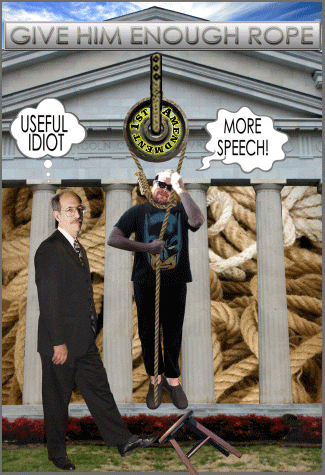
Too late now for a reprieve — the light is in the sky and there is still no parody at Charles-Carreon.com
Nowadays, there’s a lot of people claiming to be parodists who wouldn’t know how to execute a parody if they were told they would die at sunrise if they failed to do so. The operator of Charles-Carreon.com is such a man. I can imagine Popehat, in his cups, at the end of a long, boring night in his glassed-in command post, looking over the smoggy skyline towards San Bernardino, getting his jollies sending Recouvreur a text telling him he’ll hang at dawn if he can’t actually launch a real parody site against Carreon before the first rays of sun tint the sky. Poor Christopher would probably not be shocked to be told that he has fallen far short of executing a real parody.
Christopher Recouvreur is not a parodist. He is a fabulist. He makes things up about me. He imagines me doing things, and imagines my wife doing things, and puts words in the mouth of “Charles Carreon.” These words he puts in my mouth are like nothing I have ever said or would say. There’s no ironic play on my true character. He’s pretending that Charles Carreon is a silly guy, that his brain works in funny ways, and that everyone should make fun of him. There’s no parody there.
I mean, I’ve done a few parodies, so I would recognize it if someone actually parodied me. Like I took the “Hotel California” tune and wrote anti-Bush lyrics for it in “Hotel Babylonia.” I ripped off Elton John and did that “Condoleezza” song about George W. Bush’s love for his Secretary of State. I stole Elvis’ “Blue Suede Shoes” as the music for my late-term craziness opus – “The Old Ve-to,” and clipped the Sex Pistols’ “God Save the Queen” for my tour-de-force reconciliation of the opposites – “Vlad and Me.” I’ve put funny political lyrics in rock tunes lampooning conservative politicians and policies – a harmless enjoyment that is probably sufficient to get you some unwelcome attention. Like from faux parodists like Recouvreur, a Rapeutationist pretending to be an artist. Give you any odds that he did not draw that cartoon of me on the dinosaur. (Can I buy it?)
If you were an artist, and you wanted to parody me, you would have to actually look at what I have done, and start making fun of that, which of course would be possible, because everything can be made fun of, and I make the job easier by engaging in outlier behavior, like leaving the big city law grind, spending years living in yurts in the woods of Southern Oregon, and having a well-known identification with rock and rollers as heroes. C’mon, guys! There’s stuff to work with here. I’m Mexican, and you can always parody Mexicans easily, can’t you? Oh, I don’t fit the stereotype! Damn! I’ve written smart-alecky songs like “Explode on the Border,” with inflammatory lyrics like, “I’ll show you what this burrito’s for!” Don’t be lazy. You can use that.

It’s almost like my enemies don’t really care. They put all this time into researching me, and they don’t find anything to parody me about. They just don’t see the material, because they don’t have a creative bone in their body. All they’re looking for is stuff that is easily recognizable as “dirt,” bad things that Charles Carreon did or was associated with. So they miss all the thousands of ways that they could actually parody me. No surprise. They’re not parodists, they’re just poo-flingin’ zombies on a mission to paint the town brown. Since they can’t find much dirt about me, they invent dirt with lies and damn lies, expand the tiny amount of dirt that does exist, and make up the difference with plain ole “Fuck that bastard!”
This entire post flies in the face of an old saying of mine: “Never fault your enemies for ineptitude that accrues to your benefit.” Think about it. With this information, Popehat might be moved to fire Recouvreur and have someone else parody me who would be much better at it. Then again, a real parody of me would be funny, and probably much better than simply being mocked by a jackass. C’est la vie. Popehat’ll never do it. He’s just too cheap.
by Charles Carreon
August 10, 2013

The noble highwayman succored by his bawds.
Everybody knows what a parody is. My favorite is The Beggar’s Opera, by John Gay, in which he laid funny lyrics over tunes of the day, back ihoten the Neoclassical Era of English Literature, the precise dates of which I forever remain fuzzy on. I didn’t feel like I missed much from not knowing the originals of the tunes that Gay had written over the melodies of, but probably there are a lot of extra laughs to be harvested by getting those original lyrics and doing a comparison. Probably someone’s done that by now and it’s online, but I’m not going to search for it just right now.
Because I’m on a mission to get a meaningful definition of parody out of this session at the keyboard. And I’m not going to just look it up and report what I find. I’m going to think. Weird, huh?
See, when you think, sometimes you contradict yourself, and you often seem to. I seem to have contradicted myself, because my opening line says everyone knows what parody is, and the opening line of the second paragraph says I’m looking for a definition of parody. It only seems contradictory, though. In the first paragraph, I gave you an example with which you would automatically agree, especially if you know The Beggars Opera. It is a perfect example of the form, lacking nothing.
The parody presented by The Beggars Opera is deep and multi-leveled. All of British society, notoriously class-stratified, is defined as being of a piece, for as Gay’s introductory character says, “It is difficult to determine whether (in the fashionable vices) the fine gentlemen imitate the gentlemen of the road, or the gentlemen of the road the fine gentlemen.” Gay creates a parody of high manners in low places, replacing the delicate lyrics of popular English songs with the wisdom of whores and highwaymen. The results are delicious. I enjoyed reading it, hearing it in a recording, and most enjoyably, in an incredible performance at McCabes in Santa Monica, back in the early nineties. Took the whole family to get an eyeful of a truly saucy production. My dad, who took me to a few Broadway shows over the years, would have been proud. The kids felt like they’d seen more than a spectacle. They had glimpsed strange doings on that misty island towards which they were sailing – adulthood.

There are of course other very famous parodists, like Weird Al Yankovic, who made himself on the back of Michael Jackson and more power to him — the guy was funny. My favorite parody of the Michael Jackson Billy Jean video is one Steve Martin did for “The New Show,” a comedy vehicle that went nowhere, but had a great first show. I was going to law school at that time, poor as a churchmouse and always in need of cheap entertainment for the kids.

In those days, Michael Jackson was a god in LA, and that Steve Martin parody of Billy Jean practically caused me to die laughing. I noted it down as one of the most enjoyable TV moments of my life. Well, obviously, as I view it again today on the flatscreen, context is everything when you’re trying to get parodic punch. In order to enjoy the parody to its full extent, you need to know the original. Of course it shows how independently fine a librettist John Gay was, that The Beggar’s Opera is wonderfully enjoyable with no knowledge of the original songs whose tunes he borrowed. This is not the fate of most parodists, whose works, like clinging vines, require a strong tree to affix themselves to.

Too late now for a reprieve — the light is in the sky and there is still no parody at Charles-Carreon.com
Nowadays, there’s a lot of people claiming to be parodists who wouldn’t know how to execute a parody if they were told they would die at sunrise if they failed to do so. The operator of Charles-Carreon.com is such a man. I can imagine Popehat, in his cups, at the end of a long, boring night in his glassed-in command post, looking over the smoggy skyline towards San Bernardino, getting his jollies sending Recouvreur a text telling him he’ll hang at dawn if he can’t actually launch a real parody site against Carreon before the first rays of sun tint the sky. Poor Christopher would probably not be shocked to be told that he has fallen far short of executing a real parody.
Christopher Recouvreur is not a parodist. He is a fabulist. He makes things up about me. He imagines me doing things, and imagines my wife doing things, and puts words in the mouth of “Charles Carreon.” These words he puts in my mouth are like nothing I have ever said or would say. There’s no ironic play on my true character. He’s pretending that Charles Carreon is a silly guy, that his brain works in funny ways, and that everyone should make fun of him. There’s no parody there.
I mean, I’ve done a few parodies, so I would recognize it if someone actually parodied me. Like I took the “Hotel California” tune and wrote anti-Bush lyrics for it in “Hotel Babylonia.” I ripped off Elton John and did that “Condoleezza” song about George W. Bush’s love for his Secretary of State. I stole Elvis’ “Blue Suede Shoes” as the music for my late-term craziness opus – “The Old Ve-to,” and clipped the Sex Pistols’ “God Save the Queen” for my tour-de-force reconciliation of the opposites – “Vlad and Me.” I’ve put funny political lyrics in rock tunes lampooning conservative politicians and policies – a harmless enjoyment that is probably sufficient to get you some unwelcome attention. Like from faux parodists like Recouvreur, a Rapeutationist pretending to be an artist. Give you any odds that he did not draw that cartoon of me on the dinosaur. (Can I buy it?)
If you were an artist, and you wanted to parody me, you would have to actually look at what I have done, and start making fun of that, which of course would be possible, because everything can be made fun of, and I make the job easier by engaging in outlier behavior, like leaving the big city law grind, spending years living in yurts in the woods of Southern Oregon, and having a well-known identification with rock and rollers as heroes. C’mon, guys! There’s stuff to work with here. I’m Mexican, and you can always parody Mexicans easily, can’t you? Oh, I don’t fit the stereotype! Damn! I’ve written smart-alecky songs like “Explode on the Border,” with inflammatory lyrics like, “I’ll show you what this burrito’s for!” Don’t be lazy. You can use that.

It’s almost like my enemies don’t really care. They put all this time into researching me, and they don’t find anything to parody me about. They just don’t see the material, because they don’t have a creative bone in their body. All they’re looking for is stuff that is easily recognizable as “dirt,” bad things that Charles Carreon did or was associated with. So they miss all the thousands of ways that they could actually parody me. No surprise. They’re not parodists, they’re just poo-flingin’ zombies on a mission to paint the town brown. Since they can’t find much dirt about me, they invent dirt with lies and damn lies, expand the tiny amount of dirt that does exist, and make up the difference with plain ole “Fuck that bastard!”
This entire post flies in the face of an old saying of mine: “Never fault your enemies for ineptitude that accrues to your benefit.” Think about it. With this information, Popehat might be moved to fire Recouvreur and have someone else parody me who would be much better at it. Then again, a real parody of me would be funny, and probably much better than simply being mocked by a jackass. C’est la vie. Popehat’ll never do it. He’s just too cheap.
- admin
- Site Admin
- Posts: 37697
- Joined: Thu Aug 01, 2013 5:21 am
Re: Charles Carreon, The Arizona Kid
Thought Crime and Its Devotees
by Charles Carreon
August 10, 2013

Thought crime in progress provokes reflection.
Why is it that when bad things happen to other people, we don’t feel them in the same way as when they happen to us? We have a lot of faith in other people’s capacity to bear stress and pain. For all the bad things he says about me, Ken Popehat White has a lot of faith in my actual mental stability. He’s not afraid that I’ll hurt him physically or destroy his property. That’s nice, because I wouldn’t want him or anyone to worry about their physical safety on my account. The whole concept of forsaking violence as a cost of being a member of civilized society seems, to me, a fair trade. I don’t maim you, you don’t kidnap my children. We have to draw the line somewhere. Verbal violence, imagistic violence, poses and threats, all blur together. Communication pumped up with hostility can be eloquent and beautiful, crude and offensive, menacing and scary. Y’know, punk rock? It’s hard, real hard to put limits on speech based on its content. The more we allow ourselves to see, hear and think previously taboo thoughts, the more we realize many of the taboos are ridiculous. But not all of them.
There is a taboo on getting involved in fantasizing graphic violence being committed upon your chosen victims. Gilberto Valle violated that taboo at length and is now facing life in prison for plotting to kidnap and murder women. Most people think that this means that he “is guilty.” No, that is a misunderstanding of reality. Criminal guilt is an absolute concept defined by the criminal law, and the jury was given the task of trying, to the best of their limited ability, to decide whether Valle had a criminal state of mind when he wrote all those emails discussing which women he would kidnap, how he would kill them and eat them, etc. The jury concluded that he’s guilty because they were willing to decide that they knew, beyond a reasonable doubt, what was going on in Valle’s mind when he wrote the things he wrote. As Daniel Engber wrote in Slate, after observing a couple of days of the trial:
Engber’s article seems like a reliable account of a case that was shaping up to go either way, depending entirely on the jurors. Valle exchanged a lot of emails with another guy whose wife said she knew he engaged in these crazy pretend-to-plan-to-kidnap-someone games with other people online, and a third guy, who was like a dungeonmaster type in England who was egging them on. The conspiracy conviction, of course, is quite unlikely to be overturned on the grounds that Valle didn’t commit overt acts in furtherance of the conspiracies, because writing people emails telling them you’re going to buy rope to tie somebody up and a cattle prod to torture them is an overt act in furtherance of a conspiracy. But some jurors would like to see the rope and the cattle prod, while other jurors will send you to jail just for having a nasty shopping list.
Meanwhile, back at the funny farm, Ken Popehat White is up to his snout in the fine print of when verbal threats become criminal because, because, well because, goddamn, he’s been threatened. He thinks. Well not him, really, but another lawyer might think, that this guy Bill Schmalfeldt has threatened him. He’s really annoyed about it, because he republished the better part of the guy’s rant. What’s so funny is how White threatens Schmalfeldt while claiming he is not threatening him. White gives us the word for what he’s doing when he threatens to report someone to the prosecution by not reporting them to the prosecution, and merely writing a long, detailed blog post purporting to analyze the criminality of threats of physical violence. The word is “apophasis,” that Popehat explains is “the rhetorical device of saying something by asserting you are not saying it.” I’m just sayin’.
by Charles Carreon
August 10, 2013

Thought crime in progress provokes reflection.
Why is it that when bad things happen to other people, we don’t feel them in the same way as when they happen to us? We have a lot of faith in other people’s capacity to bear stress and pain. For all the bad things he says about me, Ken Popehat White has a lot of faith in my actual mental stability. He’s not afraid that I’ll hurt him physically or destroy his property. That’s nice, because I wouldn’t want him or anyone to worry about their physical safety on my account. The whole concept of forsaking violence as a cost of being a member of civilized society seems, to me, a fair trade. I don’t maim you, you don’t kidnap my children. We have to draw the line somewhere. Verbal violence, imagistic violence, poses and threats, all blur together. Communication pumped up with hostility can be eloquent and beautiful, crude and offensive, menacing and scary. Y’know, punk rock? It’s hard, real hard to put limits on speech based on its content. The more we allow ourselves to see, hear and think previously taboo thoughts, the more we realize many of the taboos are ridiculous. But not all of them.
There is a taboo on getting involved in fantasizing graphic violence being committed upon your chosen victims. Gilberto Valle violated that taboo at length and is now facing life in prison for plotting to kidnap and murder women. Most people think that this means that he “is guilty.” No, that is a misunderstanding of reality. Criminal guilt is an absolute concept defined by the criminal law, and the jury was given the task of trying, to the best of their limited ability, to decide whether Valle had a criminal state of mind when he wrote all those emails discussing which women he would kidnap, how he would kill them and eat them, etc. The jury concluded that he’s guilty because they were willing to decide that they knew, beyond a reasonable doubt, what was going on in Valle’s mind when he wrote the things he wrote. As Daniel Engber wrote in Slate, after observing a couple of days of the trial:
[i]t’s hard to say exactly what valle is accused of doing in the first place. he never kidnapped anyone, or raped anyone, or murdered anyone. he was never violent to the women who will take the stand. he’s never tasted human flesh. but he thought about these things, and he talked about these things. he may have even taken steps to plan them out. but did he really mean to do them?
Engber’s article seems like a reliable account of a case that was shaping up to go either way, depending entirely on the jurors. Valle exchanged a lot of emails with another guy whose wife said she knew he engaged in these crazy pretend-to-plan-to-kidnap-someone games with other people online, and a third guy, who was like a dungeonmaster type in England who was egging them on. The conspiracy conviction, of course, is quite unlikely to be overturned on the grounds that Valle didn’t commit overt acts in furtherance of the conspiracies, because writing people emails telling them you’re going to buy rope to tie somebody up and a cattle prod to torture them is an overt act in furtherance of a conspiracy. But some jurors would like to see the rope and the cattle prod, while other jurors will send you to jail just for having a nasty shopping list.
Meanwhile, back at the funny farm, Ken Popehat White is up to his snout in the fine print of when verbal threats become criminal because, because, well because, goddamn, he’s been threatened. He thinks. Well not him, really, but another lawyer might think, that this guy Bill Schmalfeldt has threatened him. He’s really annoyed about it, because he republished the better part of the guy’s rant. What’s so funny is how White threatens Schmalfeldt while claiming he is not threatening him. White gives us the word for what he’s doing when he threatens to report someone to the prosecution by not reporting them to the prosecution, and merely writing a long, detailed blog post purporting to analyze the criminality of threats of physical violence. The word is “apophasis,” that Popehat explains is “the rhetorical device of saying something by asserting you are not saying it.” I’m just sayin’.
- admin
- Site Admin
- Posts: 37697
- Joined: Thu Aug 01, 2013 5:21 am
Re: Charles Carreon, The Arizona Kid
Sparking Up A Cyber-Frankenstein: Pushing Yellow Journalism to the Megacrowd
by Charles Carreon
August 12, 2013

Popehat does the thing he should not do, and creates the being that should not exist.
Vampires are big today, but in the movieland of my childhood, Frankenstein was the Big Kahuna. True, Dracula was frightening, in a very creepy way, but he was also limited in his ability to inflict harm. Somewhat like the bishop in chess, who is limited to either the white or the black squares, Dracula was allergic to sunlight, garlic and crosses. Not Frankenstein, who strode about in broad daylight, seemed omnivorous, and could be relied upon to turn a crucifix into a club with great swiftness. The movie-monster Frankenstein of my childhood was mindlessly animate, in gear and on target. Once he discovered that he was not wanted by humans, he became utterly insensible to the suffering of human beings. Poor beast, to be so misunderstood, when he meant no harm! How touching, the scene where he sways entranced before the old, blind violinist, who doesn’t fear him because he can’t see him, and his granddaughter, whose innocence allows the monster to experience human kindness once. Then, never again!
From a classical moral perspective, what is wrong with Frankenstein is that he should not have been created, and his maker committed a mortal folly when he dared to frame a simulation of a man’s body from bits of corpses. Frankenstein has no soul, and is a cursed being, brought into existence by the hubris of a young man too eager to scale the pinnacles of scientific achievement without prior reflection on the moral consequences of his “creation.”
While it is fortunately impossible to duplicate the feat Mary Shelley premised her novel upon, it is still possible for clever persons to conjure new minds into existence. Every speaker who draws a crowd conjures a crowd mind into existence. This is not a metaphor, but a reality. A crowd has a body that flows like water, as nicely illustrated by this Black Friday crowd cascading into an Urban Outfitters. The physical strength of a crowd aggregates, causing people to feel less vulnerable to counterattack in a crowd, and therefore more willing to engage in attack. See the example of some very pugnacious conduct at the leading edge of an English crowd at this link.

A crowd mind is missing some of the features of the individual minds from which it arises. As I explained in a prior post, due to the Pizza Effect, the crowd mind is composed only of those mental faculties that aggregate, like physical strength and emotion, and lacks intellectual ability, that does not aggregate. So when you are feeling like everyone else in the crowd, you are dumber than usual, because you are no smarter than anyone else in the crowd. When Isaac Asimov invented the science of “psychohistory,” he was relying on the Pizza Effect when he said that although the behavior of individuals could not be predicted, the behavior of large numbers of people could –- because the aggregate of their impulses was a much more limited universe of possibilities than the impulses of a single individual. One impact of the Pizza Effect on our society is, in fact, that people eat a lot of pizza; indeed, the volume of pizza eaten in the United States has grown every year since it appeared on the market after the Second World War. Asimov would have predicted it, easily, if he’d ever bothered to give it thought.
Sometimes nations behave like organizations capable of deliberate behavior. Governments try to act cool and collected when they confront a crisis, but at the core, there is a fear of the people degenerating back into a crowd, a mob without clear purpose, but filled with urgent needs. During the last decade, one nation after another has seen the organized surface of governments convulse, revealing the seething human crowd mind, aggregating only frustration, fear, and demand, looking for guidance from some source. And those who are willing to provide guidance to a crowd can never be trusted.
There must have been nothing more satisfying for William Randolph Hearst than to know that he’d started another war and his friends at the Bohemian Grove were going to be damned happy about it. It seems he was confident about his ability to deliver an international incident on schedule:
So to take a lesson on how to inflame the masses with lies, we must examine Hearst. In “A Moment in the Sun,” author John Sayles assumes Hearst’s viewpoint in the opening to a chapter entitled “The Daily Outrage,” giving an insight into how Hearst caused newsboys to spread blatant, inflammatory lies by using a clever typographical trick, a “split” headline, that is, one written in two point-sizes, like this one:
Sayles implies that Hearst printed it that way so the urchins who hawked his papers would stand on street corners yelling, “AMERICAN GENERALS WANT TO FIGHT SPAIN!” This is a compelling insight into one of Hearst’s clever tools for inflicting his version of reality on all of society. Through third parties like newsboys who abbreviated “split heads” to produce a false statement, he got to say things he couldn’t say himself.
As a summary of the most common lies told about me by 105 Rapeutationists http://rapeutation.com/rapeumain.rapeutationists.htm clearly shows, if you believed all the lies told about me with respect to the Oatmeal litigation, you’d have an entirely false version of events and of me. Since all of the 105 Rapeutationists listed on the chart reinforce each other’s credibility with mutual backpatting in cross-comments on each other’s blogs, the cross-pollination of their intellects is too slavish to entertain criticism. Thus, they have no motive to point out errors in the Charles Carreon story on their buddy’s blog. Indeed, any tendency toward criticism of other Rapeutationists would be rejected automatically as counter-rapeutational behavior that one might have to account for. Rapeutationing is not peer review. Rapeutationing means conducting a distributed disinformation campaign against a person who, seen in a truthful light, deserves no abuse whatsoever, in order to justify the abuse. The Rapeutationists cannot credibly say, “Well, everybody would have hated you anyway, even if they’d known the literal truth,” because they can’t answer this question honestly: “Why would you bother to tell a lie that made no difference?” When it’s a lie that you bother to tell in an article that’s all about shaming Charles Carreon, then we presume you felt it had some “defamatory sting.”
Hearst was such a skillful Father of Lies that he could cause them to be shouted from the lips of innocent “street Arabs,” as homeless children were then known, who fanned the flames of war without a flicker of concern for their actions. Hearst put the machinery of distortion in motion so deftly that no one could attribute ill will to him – as if he should be responsible for the grammatical errors of urchins!
So who is the Father of Lies in my Rapeutation? Well gosh, gee golly, I’m going to go with the undisputed facts, and say “Ken Popehat White!” It’s an honor he’s won by exerting a lot of effort, putting in a lot of time urging people to hate me that he could have spent with his family. But what’s more “family” than trying to destroy someone else’s Dad? So his kid’s probably pretty understanding about “Dad’s hobby.” Kinda cool when you think about it. Unbeknownst to all but a few, he’s a Free Speech Mafioso, character assassin for hire, lead operative on important Rapeutations. To everyone else, he’s just a nice family guy who empties his own garbage and walks the dog.
It’s the volume of work being produced that tips you off that you may be dealing with a professional hatchet-man. As I review the products of research into Popehat, I’m struck by the amount of time spent on the activity, and the very large number of his Rapeutation victims. I gradually have drifted from thinking that it was absurd to imagine he’d be getting paid to conduct Rapeutations to entertaining the possibility in theory, to definitely not ruling it out.
He could be working for somebody steady, like Lenny Sands works for Howard Hughes in James Ellroy’s “American Tabloid,” stalking and exposing Hollywood personalities Hughes wants to pressure for business purposes, or wants to crush because they obstruct his right wing social agendas. Or he could run a sleaze-for-hire shop of that sort that have existed in LA since the first swindlers showed up to sell whatever suckers would pay for. Ellroy’s character Ward Littell, a lawyer/FBI agent who turns from a Kennedy worshipper to a conspirator in his assassination, is the very epitome of a person who traffics in black information, gathered from law enforcement, private investigators and freelance mercenaries at a very high level. Ken Popehat White might be a sort of micro-version of Ward Littell, gathering his information from his “army of Davids,” and spreading his poison through the same network.
Once you have your network of disinformationists, tried and tested in one Rapeutation after another, it works like a well-oiled machine. Like Hearst, Popehat can deliver a DIRA on schedule, and like Hearst, it’s his signature to seize victory by claiming it boldly. The last headline quoted by Sayles delivers the war Hearst promised Remington in his telegram, and is triumphantly brief:
Because the jump from rationality to irrationality must be quick! Once we have been brought to the brink of a calamitous decision by a series of events, each one ringing with national significance, the skillful shaper of the crowd mind presents the decision as a fait accompli.
When we think of the dangers that can befall us when the crowd mind takes action, we should consider that our Congress evermore resembles a frightened crowd, rather than a deliberative body. Remember those heady days in 2001 and 2002 when war fever seized Congress, and all but one Congresswoman acted in unison to issue the “Authorization for Use of Military Force?” A product of the Congressional crowd mind, the AUMF is so broad and ill-drafted that the Obama administration argues that it justifies new laws subjecting Americans to the risk of indefinite detention for vague offenses of the “giving comfort to the enemy” sort, unconstitutionally adopted by Congress in Section 1021(b) of the National Defense Authorization Act for the Fiscal Year 2012. In one moment of Congressional crowd mind, mistaken for “patriotism,” our elected representatives blotted out two centuries of logically developed, sound constitutional jurisprudence that protected our national integrity and individual liberty. What stampeded the Democratic Congress into giving Bush the AUMF? Why did the nation have to go to war in Iraq? The answer was of the simple sort that even the crowd mind can comprehend: “Because they hate our freedoms.”
When Ken Popehat White, in one of his early screeds contra Carreon, said that “Carreon hates freedom,” he drew from the same well of negative sentiment as George W. Bush when he accused Osama bin Laden of the same offense. What better way to kick off a DIRA? Invoke the spirit of 9/11! When he kicks off a DIRA, Popehat brings a crowd mind into existence that, like Frankenstein, should not exist. It is a crowd mind that is entirely devoted to self-pleasuring, and lacks all moral restraint, exactly like the crowd mind that Derren Brown whipped into existence in less than twenty minutes, inducing the Milgram-Zimbardo effect in record time, in his Gameshow Experiment. While careful social scientists can certainly find shortcomings in the design of Brown’s “experiment,” given what we already know about the phenomenon of “de-individuation” that leads to the absorption and disappearance of the individual mind in the crowd mind, it can simply be taken as an entertaining demonstration of how a crowd can easily be guided into a series of cruel actions by an engaging host who turns off inhibitions, turns up the arousal, and plays the crowd mind’s simple keyboard with ease.
Crowds are prone to sudden reversals of position, a topic that forms the theme of Shakespeare’s “Julius Caesar.” The Roman mobs have a central role in the play. In the opening scene, members of a crowd celebrating Julius Caesar’s assent to power are reviled by a character whose good sense recoils at the scene. He calls them “you blocks, you stones, you worse than senseless things,” because they had so recently celebrated the rule of Pompey, who was overthrown by Caesar. By the end of the play, Brutus, Cassius, and Caesar’s other killers are being pursued by the mob, whipped into a frenzy by Marc Antony’s deft manipulation of their sentiments.
The pendulum swings of the crowd mind can cause grave social changes, carrying nations into blood-stained revolutions, that fail to resolve the painful causes of the upheaval, until at last crowd-action subsides, and reasoned, humane efforts to address real problems are made. We can see this process in several Latin American countries, like Argentina and Chile, that have staggered unevenly away from the legacy of oligarchical oppression.
It is hard to realize that crowd mind is really not much good for anything besides having a good time at a concert or game. When the game spills out of the stadium and turns into a soccer mob, there’s no benefit to anyone, and danger to many. Nevertheless, we have entered the age of mass social control through the Internet, and we are going to see a great deal more crowd-mind activity, and an increasing frustration from a growing number of just plain folks who know that you can’t run a society in which rapeutations can be conducted with impunity, destroying the economic viability of individuals and businesses, because of the whimsical, malicious behavior of a relatively small proportion of Internet users who use and abuse the substantial margin of privilege secured to them by the good offices of the Free Speech Mafia.
Often, the realization that crowd mind is out of control prompts a swing away from anarchy, toward fascism, in the crowd mind itself. There is no possibility of self-reflection in a crowd, giving rise to the realization that it is acting irrationally. It is elementary crowd psychology that crowds do today what they regret tomorrow. So those who fan the flames of anarchy, who encourage youth to man the barricades and occupy the parks and public places, are often discovered, when the cycle of history has turned once again, to have been but agent provocateurs for the forces of oppression.
Popehat’s short term agenda is to turn the Internet into a place where no one can find refuge from the rage of a crowd that wants more than anything to feel its own power, to confirm its own existence by making a mark. Popehat’s long term agenda is likely more typical of persons who indulge, as Hearst did and he does, in bellicose tub-thumping, while wrapping himself in constitutional virtue – a return to tyranny, designed by reliable old white guys who look just like Ken Popehat White.
by Charles Carreon
August 12, 2013

Popehat does the thing he should not do, and creates the being that should not exist.
Vampires are big today, but in the movieland of my childhood, Frankenstein was the Big Kahuna. True, Dracula was frightening, in a very creepy way, but he was also limited in his ability to inflict harm. Somewhat like the bishop in chess, who is limited to either the white or the black squares, Dracula was allergic to sunlight, garlic and crosses. Not Frankenstein, who strode about in broad daylight, seemed omnivorous, and could be relied upon to turn a crucifix into a club with great swiftness. The movie-monster Frankenstein of my childhood was mindlessly animate, in gear and on target. Once he discovered that he was not wanted by humans, he became utterly insensible to the suffering of human beings. Poor beast, to be so misunderstood, when he meant no harm! How touching, the scene where he sways entranced before the old, blind violinist, who doesn’t fear him because he can’t see him, and his granddaughter, whose innocence allows the monster to experience human kindness once. Then, never again!
From a classical moral perspective, what is wrong with Frankenstein is that he should not have been created, and his maker committed a mortal folly when he dared to frame a simulation of a man’s body from bits of corpses. Frankenstein has no soul, and is a cursed being, brought into existence by the hubris of a young man too eager to scale the pinnacles of scientific achievement without prior reflection on the moral consequences of his “creation.”
While it is fortunately impossible to duplicate the feat Mary Shelley premised her novel upon, it is still possible for clever persons to conjure new minds into existence. Every speaker who draws a crowd conjures a crowd mind into existence. This is not a metaphor, but a reality. A crowd has a body that flows like water, as nicely illustrated by this Black Friday crowd cascading into an Urban Outfitters. The physical strength of a crowd aggregates, causing people to feel less vulnerable to counterattack in a crowd, and therefore more willing to engage in attack. See the example of some very pugnacious conduct at the leading edge of an English crowd at this link.

A crowd mind is missing some of the features of the individual minds from which it arises. As I explained in a prior post, due to the Pizza Effect, the crowd mind is composed only of those mental faculties that aggregate, like physical strength and emotion, and lacks intellectual ability, that does not aggregate. So when you are feeling like everyone else in the crowd, you are dumber than usual, because you are no smarter than anyone else in the crowd. When Isaac Asimov invented the science of “psychohistory,” he was relying on the Pizza Effect when he said that although the behavior of individuals could not be predicted, the behavior of large numbers of people could –- because the aggregate of their impulses was a much more limited universe of possibilities than the impulses of a single individual. One impact of the Pizza Effect on our society is, in fact, that people eat a lot of pizza; indeed, the volume of pizza eaten in the United States has grown every year since it appeared on the market after the Second World War. Asimov would have predicted it, easily, if he’d ever bothered to give it thought.
Sometimes nations behave like organizations capable of deliberate behavior. Governments try to act cool and collected when they confront a crisis, but at the core, there is a fear of the people degenerating back into a crowd, a mob without clear purpose, but filled with urgent needs. During the last decade, one nation after another has seen the organized surface of governments convulse, revealing the seething human crowd mind, aggregating only frustration, fear, and demand, looking for guidance from some source. And those who are willing to provide guidance to a crowd can never be trusted.
There must have been nothing more satisfying for William Randolph Hearst than to know that he’d started another war and his friends at the Bohemian Grove were going to be damned happy about it. It seems he was confident about his ability to deliver an international incident on schedule:
In 1897, prior to the sinking of the U.S.S. Maine, Frederic Remington, an artist hired by William Randolph Hearst, publisher of the New York Journal, went to Cuba with noted writer Richard Harding Davis to provide illustrations to accompany a series of articles on the Revolution. Arriving in Havana in January of 1897, Remington soon became bored with seemingly peaceful Cuba and wired Hearst:
“Everything is quiet. There is no trouble. There will be no war. I wish to return.”
Hearst’s reply is alleged to have been:
“Please remain. You furnish the pictures and I’ll furnish the war.”
http://lasparanoias.blogspot.com/2007/1 ... iracy.html
So to take a lesson on how to inflame the masses with lies, we must examine Hearst. In “A Moment in the Sun,” author John Sayles assumes Hearst’s viewpoint in the opening to a chapter entitled “The Daily Outrage,” giving an insight into how Hearst caused newsboys to spread blatant, inflammatory lies by using a clever typographical trick, a “split” headline, that is, one written in two point-sizes, like this one:
AMERICAN GENERALS WANT
MORE TROOPS IF WE ARE
TO FIGHT SPAIN
Sayles implies that Hearst printed it that way so the urchins who hawked his papers would stand on street corners yelling, “AMERICAN GENERALS WANT TO FIGHT SPAIN!” This is a compelling insight into one of Hearst’s clever tools for inflicting his version of reality on all of society. Through third parties like newsboys who abbreviated “split heads” to produce a false statement, he got to say things he couldn’t say himself.
As a summary of the most common lies told about me by 105 Rapeutationists http://rapeutation.com/rapeumain.rapeutationists.htm clearly shows, if you believed all the lies told about me with respect to the Oatmeal litigation, you’d have an entirely false version of events and of me. Since all of the 105 Rapeutationists listed on the chart reinforce each other’s credibility with mutual backpatting in cross-comments on each other’s blogs, the cross-pollination of their intellects is too slavish to entertain criticism. Thus, they have no motive to point out errors in the Charles Carreon story on their buddy’s blog. Indeed, any tendency toward criticism of other Rapeutationists would be rejected automatically as counter-rapeutational behavior that one might have to account for. Rapeutationing is not peer review. Rapeutationing means conducting a distributed disinformation campaign against a person who, seen in a truthful light, deserves no abuse whatsoever, in order to justify the abuse. The Rapeutationists cannot credibly say, “Well, everybody would have hated you anyway, even if they’d known the literal truth,” because they can’t answer this question honestly: “Why would you bother to tell a lie that made no difference?” When it’s a lie that you bother to tell in an article that’s all about shaming Charles Carreon, then we presume you felt it had some “defamatory sting.”
Hearst was such a skillful Father of Lies that he could cause them to be shouted from the lips of innocent “street Arabs,” as homeless children were then known, who fanned the flames of war without a flicker of concern for their actions. Hearst put the machinery of distortion in motion so deftly that no one could attribute ill will to him – as if he should be responsible for the grammatical errors of urchins!
So who is the Father of Lies in my Rapeutation? Well gosh, gee golly, I’m going to go with the undisputed facts, and say “Ken Popehat White!” It’s an honor he’s won by exerting a lot of effort, putting in a lot of time urging people to hate me that he could have spent with his family. But what’s more “family” than trying to destroy someone else’s Dad? So his kid’s probably pretty understanding about “Dad’s hobby.” Kinda cool when you think about it. Unbeknownst to all but a few, he’s a Free Speech Mafioso, character assassin for hire, lead operative on important Rapeutations. To everyone else, he’s just a nice family guy who empties his own garbage and walks the dog.
It’s the volume of work being produced that tips you off that you may be dealing with a professional hatchet-man. As I review the products of research into Popehat, I’m struck by the amount of time spent on the activity, and the very large number of his Rapeutation victims. I gradually have drifted from thinking that it was absurd to imagine he’d be getting paid to conduct Rapeutations to entertaining the possibility in theory, to definitely not ruling it out.
He could be working for somebody steady, like Lenny Sands works for Howard Hughes in James Ellroy’s “American Tabloid,” stalking and exposing Hollywood personalities Hughes wants to pressure for business purposes, or wants to crush because they obstruct his right wing social agendas. Or he could run a sleaze-for-hire shop of that sort that have existed in LA since the first swindlers showed up to sell whatever suckers would pay for. Ellroy’s character Ward Littell, a lawyer/FBI agent who turns from a Kennedy worshipper to a conspirator in his assassination, is the very epitome of a person who traffics in black information, gathered from law enforcement, private investigators and freelance mercenaries at a very high level. Ken Popehat White might be a sort of micro-version of Ward Littell, gathering his information from his “army of Davids,” and spreading his poison through the same network.
Once you have your network of disinformationists, tried and tested in one Rapeutation after another, it works like a well-oiled machine. Like Hearst, Popehat can deliver a DIRA on schedule, and like Hearst, it’s his signature to seize victory by claiming it boldly. The last headline quoted by Sayles delivers the war Hearst promised Remington in his telegram, and is triumphantly brief:
WAR? SURE!
Because the jump from rationality to irrationality must be quick! Once we have been brought to the brink of a calamitous decision by a series of events, each one ringing with national significance, the skillful shaper of the crowd mind presents the decision as a fait accompli.
When we think of the dangers that can befall us when the crowd mind takes action, we should consider that our Congress evermore resembles a frightened crowd, rather than a deliberative body. Remember those heady days in 2001 and 2002 when war fever seized Congress, and all but one Congresswoman acted in unison to issue the “Authorization for Use of Military Force?” A product of the Congressional crowd mind, the AUMF is so broad and ill-drafted that the Obama administration argues that it justifies new laws subjecting Americans to the risk of indefinite detention for vague offenses of the “giving comfort to the enemy” sort, unconstitutionally adopted by Congress in Section 1021(b) of the National Defense Authorization Act for the Fiscal Year 2012. In one moment of Congressional crowd mind, mistaken for “patriotism,” our elected representatives blotted out two centuries of logically developed, sound constitutional jurisprudence that protected our national integrity and individual liberty. What stampeded the Democratic Congress into giving Bush the AUMF? Why did the nation have to go to war in Iraq? The answer was of the simple sort that even the crowd mind can comprehend: “Because they hate our freedoms.”
When Ken Popehat White, in one of his early screeds contra Carreon, said that “Carreon hates freedom,” he drew from the same well of negative sentiment as George W. Bush when he accused Osama bin Laden of the same offense. What better way to kick off a DIRA? Invoke the spirit of 9/11! When he kicks off a DIRA, Popehat brings a crowd mind into existence that, like Frankenstein, should not exist. It is a crowd mind that is entirely devoted to self-pleasuring, and lacks all moral restraint, exactly like the crowd mind that Derren Brown whipped into existence in less than twenty minutes, inducing the Milgram-Zimbardo effect in record time, in his Gameshow Experiment. While careful social scientists can certainly find shortcomings in the design of Brown’s “experiment,” given what we already know about the phenomenon of “de-individuation” that leads to the absorption and disappearance of the individual mind in the crowd mind, it can simply be taken as an entertaining demonstration of how a crowd can easily be guided into a series of cruel actions by an engaging host who turns off inhibitions, turns up the arousal, and plays the crowd mind’s simple keyboard with ease.
Crowds are prone to sudden reversals of position, a topic that forms the theme of Shakespeare’s “Julius Caesar.” The Roman mobs have a central role in the play. In the opening scene, members of a crowd celebrating Julius Caesar’s assent to power are reviled by a character whose good sense recoils at the scene. He calls them “you blocks, you stones, you worse than senseless things,” because they had so recently celebrated the rule of Pompey, who was overthrown by Caesar. By the end of the play, Brutus, Cassius, and Caesar’s other killers are being pursued by the mob, whipped into a frenzy by Marc Antony’s deft manipulation of their sentiments.
The pendulum swings of the crowd mind can cause grave social changes, carrying nations into blood-stained revolutions, that fail to resolve the painful causes of the upheaval, until at last crowd-action subsides, and reasoned, humane efforts to address real problems are made. We can see this process in several Latin American countries, like Argentina and Chile, that have staggered unevenly away from the legacy of oligarchical oppression.
It is hard to realize that crowd mind is really not much good for anything besides having a good time at a concert or game. When the game spills out of the stadium and turns into a soccer mob, there’s no benefit to anyone, and danger to many. Nevertheless, we have entered the age of mass social control through the Internet, and we are going to see a great deal more crowd-mind activity, and an increasing frustration from a growing number of just plain folks who know that you can’t run a society in which rapeutations can be conducted with impunity, destroying the economic viability of individuals and businesses, because of the whimsical, malicious behavior of a relatively small proportion of Internet users who use and abuse the substantial margin of privilege secured to them by the good offices of the Free Speech Mafia.
Often, the realization that crowd mind is out of control prompts a swing away from anarchy, toward fascism, in the crowd mind itself. There is no possibility of self-reflection in a crowd, giving rise to the realization that it is acting irrationally. It is elementary crowd psychology that crowds do today what they regret tomorrow. So those who fan the flames of anarchy, who encourage youth to man the barricades and occupy the parks and public places, are often discovered, when the cycle of history has turned once again, to have been but agent provocateurs for the forces of oppression.
Popehat’s short term agenda is to turn the Internet into a place where no one can find refuge from the rage of a crowd that wants more than anything to feel its own power, to confirm its own existence by making a mark. Popehat’s long term agenda is likely more typical of persons who indulge, as Hearst did and he does, in bellicose tub-thumping, while wrapping himself in constitutional virtue – a return to tyranny, designed by reliable old white guys who look just like Ken Popehat White.
- admin
- Site Admin
- Posts: 37697
- Joined: Thu Aug 01, 2013 5:21 am
Re: Charles Carreon, The Arizona Kid
"Streisand Effect" or "King Syndrome"?
by Charles Carreon
September 9, 2013

A few weeks after the Rodney King-inspired L.A. riots of 1992, my son Joshua, then attending Santa Monica High, asked me, “Did you know the LAPD is changing its motto from ‘To serve and protect?’”
“No,” I answered. “What are they changing it to?”
“We treat you like a King!” he answered with laughing eyes asparkle.
I laughed and told him, “Yeah, well next time you see an LAPD black and white, you look at the fenders, and you’ll see hundreds of tiny little dings all down the side of the car. Those little dings were made by the belt-buckles of suspects thrown up against the car. So mind you don’t end up making one of those impressions.”
About another week later, Josh told me breathlessly, “You know what you told me about the dings in the cop car fenders? Well I looked, and you were right!” I nodded with fatherly certitude. “Yeah, they’re almost all that way.”
Raising a boy in L.A. who liked to play with Krylon in empty lots required that type of information sharing. Of course, I had been manhandled by a gang of LAPD cycle cops one evening after my motorcycle got smacked out from under me like a toy hit by a billiard ball at fifty miles an hour, leaving me adrenaline-pumped and in no mood to see my bike impounded for a crime it did not commit. As the cycle pigs hauled on my arms, two on each one, I groaned, “Can we talk about this?” One blue meanie yelled in my ear, “We’ll talk about it after we break your arms, asshole!” Alas, fifteen years of aikido, yoga and taichi conspired to frustrate the good officers’ plan, and they finally gave up on the break-first, talk-later approach when I yelled, “For God’s sake, I’m a law student!” After the parting insults, they dispersed, leaving me to chat with the decent patrolman who told me where to de-impound my bike, and apologized for the conduct of the biker cops.
For about a year after that, I understood why LAPD shoot a lot of people. A lot of people want to shoot them because of the shit they pull. I certainly hoped a wad of lead would be the just rewards for the bastards who beat me up, and believe me, my arm hurt a long time after that. Not, of course, as long as Rodney King’s injuries.
Rodney’s purported sin, the one cops claimed justified the infamous beating that not one out of a hundred white men could survive, was one with which I am, nevertheless, quite familiar. They said that he resisted. That as he lay, flat on the ground, every involuntary twitch struck terror into the hearts of the big, club-wielding macho men. So they hit him again, and again, and again. Fifty-six times, as I recall.
And the all-white Simi-Valley jury, drawn from the well-known police-bedroom-community that houses the Ronald Reagan memorial library, bought that story. They acquitted those murder-minded embarrassments to the concept of just law-enforcement. And a city exploded in anger. Less than a year later, I moved out of L.A. with my family. The pleasure of living there was gone. A bitter scum of race hatred had started to circulate through the city, and I no longer felt safe. To put the lock on it, I tried a carjacking-related case in which black gangsters featured prominently, and I spent a lot of time dealing with some very decent LAPD cops as witnesses. The gang death toll for the year was in the triple digits before my birthday in April of 1994, and by the time I’d turned 38, we were residents of Ashland, Oregon again.
The LAPD cops didn’t call it “King Syndrome,” but I could define it as: “A defense to continued assault upon a prostrate victim whose failure to remain completely immobile while suffering a severe beating indicates, to the attacker, a continued effort to resist the beating.”

Of course, the killer pigs who pounded Rodney’s body into blood-soaked hamburger had to blame Rodney for the treatment they were administering. But what everyone in touch with reality knew was that the casual steadiness with which the cops committed their brutal baton bukkake revealed that this event was good times. It was a candid view of sadists torturing a man at taxpayer expense. It was way fucked up.
That LAPD beat people to death was no surprise to me. Even as a lad, my father told me that LAPD had beat my uncle Ray Hunter to death. Uncle Ray got rich selling a patent medicine remedy called “fluora-cubes,” a sort of chelation agent, as best I can determine. Ray apparently got on the wrong side of the L.A. enforcers by joining the L.A. Country Club, and insulting prominent physicians on the golf-course with his brazen sales pitch that literally involved telling people they were full of shit because they weren’t flushing their system with fluora-cubes. His wife, my Aunt Ray, discovered him in a hospital for the homeless, three days after he disappeared, beaten to a pulp, dying, and shortly, dead. She was left to raise their daughter in the house he’d bought them in the Normandy district of L.A.

But I digress and you grow impatient. Lured here with the magic phrase “Streisand Effect,” you’ve been treated to a civil rights lecture drenched in noir. So let us onward to the obvious.
The very term “Streisand Effect” is a Rapeutationist trick — taking over a great name, associating it with an idea the Rapeutationists want to advance, and destroying its prior beneficial association with the great person. “Streisand” was associated with the stirring love songs dear to the generation that came to adulthood in the sixties. She gave enjoyment and meaning to life for millions of people. Even I remember singing along to “People” with great enjoyment when I was an adolescent.
Now, because Barbra did what — acted litigiously in one circumstance of her life — her achievements are obscured by the howlings of a chorus of digital hyenas? She is a laughing-stock?
Well, in the minds of those who take what is written by Rapeutationists as true — yes. And one of the nation’s most loved and lauded singers is, first, a signal idiot, and second, a musical footnote. Why? Because she resisted. Take it from one of my own Rapeutationists, Robert Stacy McCain, whose sage advice is as follows:
McCain’s advice, being so solidly-grounded in an assumption that people being publicly shamed will immediately admit their “error” and submit to the demands of mass-mind, is imbued with the effrontery of the habitually victorious. But I have always been slow to accept that large numbers of people are smarter than I, since the tests I was given by psychologists clearly showed otherwise. Just because you are bigger than me doesn’t make you right.
As I stumbled through the gauntlet of my DIRA facing each hate-contorted visage shrieking ill-will in my face, I of course tried to maintain a manly posture. My profession is to prevail in adversity, and I answer only to myself and the laws. How insulting to the mass! No cowering. No apologies. No concession to their wisdom. How dare I sue Matt Inman! Indiegogo! All the saints in the Cyber-Temple!
In this, I may have resembled Rodney King early in the engagement, when he twice confronted his tormenters in a post-TASER rage. You always hope, that just for a second, they were afraid. https://www.youtube.com/watch?v=sb1WywIpUtY But anyone watching the video knows they’re not afraid. They’re turned on. The idea that Rodney was going to grab a gun from one of them? Absurd. The first one to think that would’ve backed up, unholstered his gun, and taken aim. Rodney had no chance. Nor did I. It’s like watching an avalanche hit a ski lodge. No survivors.
So “Streisand Effect” does not, in fact, describe anything that arises due to the conduct of a Rapeutation victim. “Streisand Effect” is simply a description of an unrelieved assault by a distributed Internet mob, i.e., a DIRA. The idea that “Streisand did it to herself” is patently absurd. She did not launch, maintain, or participate in her own Rapeutation.
Like the LAPD cops who beat Rodney, the Rapeutationists get paid to launch, maintain and participate in DIRAs. It lends to a Rapeutationist’s credibility that he appear to be employed. Merely claiming “tech employment” in the Rapeutation-sphere is sufficient to make you a tech expert, at least enough to join in a scorn-a-thon against an object of hatred that has become au courant. In moments of mass hate, few will quibble with the grammar of your hate-speech. So in one sense it is an environment of universal goodwill, in which the Streisand Effect is born.
Mike Masnick is generally given credit for stealing Barbra Streisand’s name and turning it into a stalking horse for unbridled sadism. How’s that work, you say? You still need more lessons? Let’s go right to the fount of DIRA wisdom, shall we? A poster at Popehat puts it all in the right light in a post that explains why it took two trials to convict any of Rodney King’s tormentors:
The post is, from a statistical point of view, unimpeachable. Fear of nonexistent guns by police is a widespread phenomenon, and they will kill you for it. And when they do, they do not go to jail.
This is because homicide is justified by reasonable fear, and it is not unreasonable to fear guns in a gun-riddled society. So to get away with murder, the killer almost always has to blame the victim.
Masnick knew what he was doing when he stole the name Barbra had burnished with a lifetime of work and used it as a weapon to blacken her. He gave the DIRA mob, and all future mobs, a convenient way to blame the victim, and argue that their Rapeutation was due to their own [general stupidity, Internet-idiocy, fill-in-the-blank-epithet]. “Streisand Effect” is a term applied retrospectively to explain a DIRA, in other words, it is a rhetorical device for allocating blame away from the obvious source of the action. For this type of thing, Masnick deserves payment. I don’t know what would be appropriate, but I’m thinking along the lines of what that gangster at the end of Pulp Fiction has in mind — gettin’ Medieval on his ass.
_______________
Comment by Charles Carreon, 5/14/2014:
A prosecutor up in Jackson County, Oregon with whom I worked in the nineties, Angie Lanier, told me how she had gotten an enhanced penalty against a kid who kicked another kid into a comba with his high-top athletic shoes, because the judge ruled that the boots were a deadly weapon. Cop boots will serve as well, as this video clip of a couple of uniformed Philadelphia criminals trying to kick Delbert Africa of the MOVE commune into a coma makes clear.
Frank Rizzo’s Storm-Troopers Beating Delbert Africa, Philadelphia, 1978
by Charles Carreon
September 9, 2013

A few weeks after the Rodney King-inspired L.A. riots of 1992, my son Joshua, then attending Santa Monica High, asked me, “Did you know the LAPD is changing its motto from ‘To serve and protect?’”
“No,” I answered. “What are they changing it to?”
“We treat you like a King!” he answered with laughing eyes asparkle.
I laughed and told him, “Yeah, well next time you see an LAPD black and white, you look at the fenders, and you’ll see hundreds of tiny little dings all down the side of the car. Those little dings were made by the belt-buckles of suspects thrown up against the car. So mind you don’t end up making one of those impressions.”
About another week later, Josh told me breathlessly, “You know what you told me about the dings in the cop car fenders? Well I looked, and you were right!” I nodded with fatherly certitude. “Yeah, they’re almost all that way.”
Raising a boy in L.A. who liked to play with Krylon in empty lots required that type of information sharing. Of course, I had been manhandled by a gang of LAPD cycle cops one evening after my motorcycle got smacked out from under me like a toy hit by a billiard ball at fifty miles an hour, leaving me adrenaline-pumped and in no mood to see my bike impounded for a crime it did not commit. As the cycle pigs hauled on my arms, two on each one, I groaned, “Can we talk about this?” One blue meanie yelled in my ear, “We’ll talk about it after we break your arms, asshole!” Alas, fifteen years of aikido, yoga and taichi conspired to frustrate the good officers’ plan, and they finally gave up on the break-first, talk-later approach when I yelled, “For God’s sake, I’m a law student!” After the parting insults, they dispersed, leaving me to chat with the decent patrolman who told me where to de-impound my bike, and apologized for the conduct of the biker cops.
For about a year after that, I understood why LAPD shoot a lot of people. A lot of people want to shoot them because of the shit they pull. I certainly hoped a wad of lead would be the just rewards for the bastards who beat me up, and believe me, my arm hurt a long time after that. Not, of course, as long as Rodney King’s injuries.
Rodney’s purported sin, the one cops claimed justified the infamous beating that not one out of a hundred white men could survive, was one with which I am, nevertheless, quite familiar. They said that he resisted. That as he lay, flat on the ground, every involuntary twitch struck terror into the hearts of the big, club-wielding macho men. So they hit him again, and again, and again. Fifty-six times, as I recall.
And the all-white Simi-Valley jury, drawn from the well-known police-bedroom-community that houses the Ronald Reagan memorial library, bought that story. They acquitted those murder-minded embarrassments to the concept of just law-enforcement. And a city exploded in anger. Less than a year later, I moved out of L.A. with my family. The pleasure of living there was gone. A bitter scum of race hatred had started to circulate through the city, and I no longer felt safe. To put the lock on it, I tried a carjacking-related case in which black gangsters featured prominently, and I spent a lot of time dealing with some very decent LAPD cops as witnesses. The gang death toll for the year was in the triple digits before my birthday in April of 1994, and by the time I’d turned 38, we were residents of Ashland, Oregon again.
The LAPD cops didn’t call it “King Syndrome,” but I could define it as: “A defense to continued assault upon a prostrate victim whose failure to remain completely immobile while suffering a severe beating indicates, to the attacker, a continued effort to resist the beating.”

Of course, the killer pigs who pounded Rodney’s body into blood-soaked hamburger had to blame Rodney for the treatment they were administering. But what everyone in touch with reality knew was that the casual steadiness with which the cops committed their brutal baton bukkake revealed that this event was good times. It was a candid view of sadists torturing a man at taxpayer expense. It was way fucked up.
That LAPD beat people to death was no surprise to me. Even as a lad, my father told me that LAPD had beat my uncle Ray Hunter to death. Uncle Ray got rich selling a patent medicine remedy called “fluora-cubes,” a sort of chelation agent, as best I can determine. Ray apparently got on the wrong side of the L.A. enforcers by joining the L.A. Country Club, and insulting prominent physicians on the golf-course with his brazen sales pitch that literally involved telling people they were full of shit because they weren’t flushing their system with fluora-cubes. His wife, my Aunt Ray, discovered him in a hospital for the homeless, three days after he disappeared, beaten to a pulp, dying, and shortly, dead. She was left to raise their daughter in the house he’d bought them in the Normandy district of L.A.

But I digress and you grow impatient. Lured here with the magic phrase “Streisand Effect,” you’ve been treated to a civil rights lecture drenched in noir. So let us onward to the obvious.
The very term “Streisand Effect” is a Rapeutationist trick — taking over a great name, associating it with an idea the Rapeutationists want to advance, and destroying its prior beneficial association with the great person. “Streisand” was associated with the stirring love songs dear to the generation that came to adulthood in the sixties. She gave enjoyment and meaning to life for millions of people. Even I remember singing along to “People” with great enjoyment when I was an adolescent.
Now, because Barbra did what — acted litigiously in one circumstance of her life — her achievements are obscured by the howlings of a chorus of digital hyenas? She is a laughing-stock?
Well, in the minds of those who take what is written by Rapeutationists as true — yes. And one of the nation’s most loved and lauded singers is, first, a signal idiot, and second, a musical footnote. Why? Because she resisted. Take it from one of my own Rapeutationists, Robert Stacy McCain, whose sage advice is as follows:
Look: If you are ever in a situation where your stupidity makes you a target, the correct thing to do is . . . nothing. Don’t react. Don’t try to defend yourself. Don’t lash out at your tormenters. Just ignore it until it is over. Learn your lesson, avoid repetition of the error, and be glad it wasn’t worse. People who merely describe your stupidity — however mocking and sarcastic their descriptions — have done you no wrong.”
McCain’s advice, being so solidly-grounded in an assumption that people being publicly shamed will immediately admit their “error” and submit to the demands of mass-mind, is imbued with the effrontery of the habitually victorious. But I have always been slow to accept that large numbers of people are smarter than I, since the tests I was given by psychologists clearly showed otherwise. Just because you are bigger than me doesn’t make you right.
As I stumbled through the gauntlet of my DIRA facing each hate-contorted visage shrieking ill-will in my face, I of course tried to maintain a manly posture. My profession is to prevail in adversity, and I answer only to myself and the laws. How insulting to the mass! No cowering. No apologies. No concession to their wisdom. How dare I sue Matt Inman! Indiegogo! All the saints in the Cyber-Temple!
In this, I may have resembled Rodney King early in the engagement, when he twice confronted his tormenters in a post-TASER rage. You always hope, that just for a second, they were afraid. https://www.youtube.com/watch?v=sb1WywIpUtY But anyone watching the video knows they’re not afraid. They’re turned on. The idea that Rodney was going to grab a gun from one of them? Absurd. The first one to think that would’ve backed up, unholstered his gun, and taken aim. Rodney had no chance. Nor did I. It’s like watching an avalanche hit a ski lodge. No survivors.
So “Streisand Effect” does not, in fact, describe anything that arises due to the conduct of a Rapeutation victim. “Streisand Effect” is simply a description of an unrelieved assault by a distributed Internet mob, i.e., a DIRA. The idea that “Streisand did it to herself” is patently absurd. She did not launch, maintain, or participate in her own Rapeutation.
Like the LAPD cops who beat Rodney, the Rapeutationists get paid to launch, maintain and participate in DIRAs. It lends to a Rapeutationist’s credibility that he appear to be employed. Merely claiming “tech employment” in the Rapeutation-sphere is sufficient to make you a tech expert, at least enough to join in a scorn-a-thon against an object of hatred that has become au courant. In moments of mass hate, few will quibble with the grammar of your hate-speech. So in one sense it is an environment of universal goodwill, in which the Streisand Effect is born.
Mike Masnick is generally given credit for stealing Barbra Streisand’s name and turning it into a stalking horse for unbridled sadism. How’s that work, you say? You still need more lessons? Let’s go right to the fount of DIRA wisdom, shall we? A poster at Popehat puts it all in the right light in a post that explains why it took two trials to convict any of Rodney King’s tormentors:
“[I]f you really really really want to follow someone on the street, burst into their home, pull a gun, and shoot them to death, I suggest the following two-step process:
1) be a police officer with union representation.
2) say repeatedly “I thought he was going for a gun”. Even when no gun is ever found, keep saying this.
The post is, from a statistical point of view, unimpeachable. Fear of nonexistent guns by police is a widespread phenomenon, and they will kill you for it. And when they do, they do not go to jail.
This is because homicide is justified by reasonable fear, and it is not unreasonable to fear guns in a gun-riddled society. So to get away with murder, the killer almost always has to blame the victim.
Masnick knew what he was doing when he stole the name Barbra had burnished with a lifetime of work and used it as a weapon to blacken her. He gave the DIRA mob, and all future mobs, a convenient way to blame the victim, and argue that their Rapeutation was due to their own [general stupidity, Internet-idiocy, fill-in-the-blank-epithet]. “Streisand Effect” is a term applied retrospectively to explain a DIRA, in other words, it is a rhetorical device for allocating blame away from the obvious source of the action. For this type of thing, Masnick deserves payment. I don’t know what would be appropriate, but I’m thinking along the lines of what that gangster at the end of Pulp Fiction has in mind — gettin’ Medieval on his ass.
_______________
Comment by Charles Carreon, 5/14/2014:
A prosecutor up in Jackson County, Oregon with whom I worked in the nineties, Angie Lanier, told me how she had gotten an enhanced penalty against a kid who kicked another kid into a comba with his high-top athletic shoes, because the judge ruled that the boots were a deadly weapon. Cop boots will serve as well, as this video clip of a couple of uniformed Philadelphia criminals trying to kick Delbert Africa of the MOVE commune into a coma makes clear.
Frank Rizzo’s Storm-Troopers Beating Delbert Africa, Philadelphia, 1978
- admin
- Site Admin
- Posts: 37697
- Joined: Thu Aug 01, 2013 5:21 am
Re: Charles Carreon, The Arizona Kid
Pharaoh and The Red Sea
by Charles Carreon
September 16, 2013
Sometimes, I swear, I am slow on the fucking uptake. I’m sitting here, reading Bruce Sterling’s “Distraction,” that I immediately thought of when Netwar exploded around my ears. But it had slipped out of my collection, probably gifted away, and not until a few months ago did I order the book from Amazon. Sterling’s putting words in the mouth of the wheelchair-bound hacker, Kevin, responding to a question about why two mobs, the Regulators and the Moderators, hate each other:
And now I’m laughing, because I realize that I marched into the feud between Funny Junkers and Oatmealers like Pharaoh marching into the Red Sea, thinking I was Moses. I literally saw the image in my mind as I was walking down the hall.
Ah well, better knowledge now than never. And now, of course, I understand better why people would think it stupid and arrogant of me to ignore the risks of inserting yourself in the middle of a mob and trying to affect its behavior. Indeed, past experience has taught me that one can sustain serious injury engaging in such exercises.
For example, the first Ramones concert I ever went to, I went with a friend who is a very tiny person. Of course, we went up to the very front. The “Hey, Ho, Let’s Go” chant started building in advance of the stage walk-on, and the crowd started surging, sort of threatening to curl over on us, actually. My friend got scared, and wanted out of the front line. I grabbed her hand and started pushing straight for the back of the Palladium. I was halfway through the dense pack of bodies, squeezed leather-to-leather about fifty bodies thick, when Joey walked on with the band, shouted “One, two, three, four!” and started the mayhem. The band exploded and all the bodies around us detonated into a mosh pit populated with flailing elbows, knees, and hands and heads. My friend lost her footing. As I and others reached down to scoop her up, I extended an arm out, trying to hold back the crowd. My arm was promptly dislocated. We struggled out of the boiling dance-mob and although I was able to put my shoulder back in its socket, I was in a pain haze for a half hour that took a lot of the fun out of the show. It took weeks to heal, but the only sign of injury was a small bruise on the shoulder. I’d like to say I didn’t repeat the error, but actually, I did the exact same damn thing at another Ramones concert a year or so later, playing do-gooder in the mosh pit for some random mosher who fell down. But that time, I knew the drill, popped my shoulder back in easily, self-medicated aggressively with Budweiser, and had a good time.
Okay, now I know mobs exist on the Internet. I fucking swear I did not know. “Stoopid!” roars the crowd. Okay, I admit it. I was stupid. “Internet lawyer? Internet bonehead more like it!” Okay, also true. Not knowing that there were Internet mobs was sort of like a South Sea Captain in the nineteenth century not knowing that there were cannibals on some islands.
The lesson? “Never get involved in a game of which you do not know the rules.” Right. You can take that to the bank.
So now I am older, yes. Wiser, also. Contrite? Are you kidding? Let me tell you something — more things of value are discovered in the wreckage of perceived disaster than the guardians of order would like you to believe. I may not have known mobs before, but now I know mobs like a surfer knows the sea after he's been munched by a giant wave, had his board busted and been coughed up on the beach.
It reminds me of my own poem, “After Troy,” that I wrote about the Sex.com case. My war-weary lines are yet the light of wisdom at last — the glimmering that illuminates the true things of value — home, hearth, and love. And now that I know what crowds are, I might get into crowdsurfing.
by Charles Carreon
September 16, 2013
Sometimes, I swear, I am slow on the fucking uptake. I’m sitting here, reading Bruce Sterling’s “Distraction,” that I immediately thought of when Netwar exploded around my ears. But it had slipped out of my collection, probably gifted away, and not until a few months ago did I order the book from Amazon. Sterling’s putting words in the mouth of the wheelchair-bound hacker, Kevin, responding to a question about why two mobs, the Regulators and the Moderators, hate each other:
“Why do mobs always hate each other? Somebody stole somebody’s girlfriend, somebody hacked somebody’s phones. They’re mobs. So they have no laws. So they have to feud with each other. It’s tribal. Tribes always act like that.”
And now I’m laughing, because I realize that I marched into the feud between Funny Junkers and Oatmealers like Pharaoh marching into the Red Sea, thinking I was Moses. I literally saw the image in my mind as I was walking down the hall.
Ah well, better knowledge now than never. And now, of course, I understand better why people would think it stupid and arrogant of me to ignore the risks of inserting yourself in the middle of a mob and trying to affect its behavior. Indeed, past experience has taught me that one can sustain serious injury engaging in such exercises.
For example, the first Ramones concert I ever went to, I went with a friend who is a very tiny person. Of course, we went up to the very front. The “Hey, Ho, Let’s Go” chant started building in advance of the stage walk-on, and the crowd started surging, sort of threatening to curl over on us, actually. My friend got scared, and wanted out of the front line. I grabbed her hand and started pushing straight for the back of the Palladium. I was halfway through the dense pack of bodies, squeezed leather-to-leather about fifty bodies thick, when Joey walked on with the band, shouted “One, two, three, four!” and started the mayhem. The band exploded and all the bodies around us detonated into a mosh pit populated with flailing elbows, knees, and hands and heads. My friend lost her footing. As I and others reached down to scoop her up, I extended an arm out, trying to hold back the crowd. My arm was promptly dislocated. We struggled out of the boiling dance-mob and although I was able to put my shoulder back in its socket, I was in a pain haze for a half hour that took a lot of the fun out of the show. It took weeks to heal, but the only sign of injury was a small bruise on the shoulder. I’d like to say I didn’t repeat the error, but actually, I did the exact same damn thing at another Ramones concert a year or so later, playing do-gooder in the mosh pit for some random mosher who fell down. But that time, I knew the drill, popped my shoulder back in easily, self-medicated aggressively with Budweiser, and had a good time.
Okay, now I know mobs exist on the Internet. I fucking swear I did not know. “Stoopid!” roars the crowd. Okay, I admit it. I was stupid. “Internet lawyer? Internet bonehead more like it!” Okay, also true. Not knowing that there were Internet mobs was sort of like a South Sea Captain in the nineteenth century not knowing that there were cannibals on some islands.
The lesson? “Never get involved in a game of which you do not know the rules.” Right. You can take that to the bank.
So now I am older, yes. Wiser, also. Contrite? Are you kidding? Let me tell you something — more things of value are discovered in the wreckage of perceived disaster than the guardians of order would like you to believe. I may not have known mobs before, but now I know mobs like a surfer knows the sea after he's been munched by a giant wave, had his board busted and been coughed up on the beach.
It reminds me of my own poem, “After Troy,” that I wrote about the Sex.com case. My war-weary lines are yet the light of wisdom at last — the glimmering that illuminates the true things of value — home, hearth, and love. And now that I know what crowds are, I might get into crowdsurfing.
After Troy, by Charles Carreon
To destroy another’s homeland is not brave.
The gods appoint the hours
Of man’s destruction, and enemies
But loot the ruins of that which heaven overturns.
To be long away from home in battle is not sweet.
The spirit craves only the warmth of the home fires,
The familiar shape of one’s own island
Carved against the sky.
An old goat sticks to the highlands
Where men don’t trust their feet.
A clever fellow watches and waits.
Time does his work for him.
Now numberless leagues of sea
Separate my men from those they love.
The waves give not a single inch,
And silence is heard from above.
Adventures have carved sinews on my back,
Streaked my beard with grey.
The work of outwitting gods and men,
Is with me every day.
Scylla and Charybdis will I dare
Their gnashing teeth will meet my glare,
And Circe with her magics try
And little better fare.
As Heracles for golden apples
Journeyed to the sun,
So to join Penelope,
The longest race I’ll run.
- admin
- Site Admin
- Posts: 37697
- Joined: Thu Aug 01, 2013 5:21 am
Re: Charles Carreon, The Arizona Kid
An Unlikely Win Improves The Odds of Winning For the American Buddha Digital Library
by Charles Carreon
9/18/13

One-Percent Chance Comes In For American Buddha
Motions to transfer venue are some of the least-often granted motions in the Federal system — ninety-nine percent (99%) of these motions are denied. Nonetheless, my client American Buddha, through the good offices of local counsel in Portland, just won its motion to transfer venue from the US District Court of Portland, Oregon to Arizona. Magistrate Judge Dennis J. Hubel’s opinion is a well-reasoned discussion of all the arguments made by both parties.
With This Ruling, American Buddha Doubled Its Odds of Winning
Cited in the motion to transfer venue is an interesting study that may have influenced Judge Hubel’s analysis, although he didn’t refer to it. Entitled “Exorcising the Evil of Forum-Shopping,” by Kevin M. Clermont and Theodore Eisenberg of Cornell Law School, it indicates that, by securing a transfer, American Buddha will statistically reduce Penguin’s chance of winning from 58% to 29%:
I also got the ninety-nine percent failure rate on transfer motion quoted above, from this same study:
A Beautiful Day In Tucson, Arizona
After transfer, American Buddha will have the opportunity to try its case to a community where the University of Arizona School of Library Science is a major feature of civic pride, where our yearly Book Fair draws many thousands of book lovers, book dealers, and even circus performers to ply their wares and skills. American Buddha’s members will be able to testify in open court as to the value and use of the Nader Library operated by American Buddha. it’s a beautiful day in the neighborhood, with only one caveat: Although it was within his power to simply grant the motion, Judge Hubel very considerately gave Penguin the opportunity to have the decision reviewed by an Article III judge. Penguin may take the opportunity to object to Judge Hubel’s Findings & Recommendations, which would thus further delay the resolution of the issues on the merits.
American Buddha: Litigating For Library Freedom Since 2009
For those unfamiliar with the story, this case has been going on since 2009, when Penguin filed its lawsuit in the Southern DIstrict of New York — a jurisdiction where Amereican Buddha could not lawfully be sued — a finding of fact and principle of law that was firmly established when District Judge Ronnie Abrams dismissed the action for the second time after four years of litigation that traversed the Second Circuit Court of Appeals and elicited an opinion from the New York Court of Appeals holding that copyrights for written books are injured in the state where the copyright owner resides. While the NYCA certainly intended thereby to help Penguin to victory in the SDNY, the facts were so compelling that American Buddha won anyway.
Penguin Abandons The “Virtual Library Only Doctrine”
Finally, I should note an interesting thing that happened to Penguin’s legal position up in Oregon — it abandoned its contention that the Library Exemption from Copyright Liability provided by 17 USC Section 108 and associated common law doctrines does not apply to “virtual-only libraries.” Why did that happen? Because American Buddha’s Motion to Transfer Venue made it clear that establishing that the Library has a “brick-and-mortar” facility will be crucial to overcoming that contention. American Buddha made this argument in its reply brief in support of the motion to transfer venue:
In response to this argument, what did Penguin do? Well everyone knows how agile penguins are — they can swim on their backs, flip around on slick ice, and reverse position in mid-trajectory. So that’s what Penguin did, attempting to jettison the “Virtual Only Library Doctrine” by requesting an amendment. Initially, Penguin almost achieved that shift in position without dispute, because due to an error in communications, the first set of lawyers for American Buddha mistakenly agreed to allow the amendment; however, that error was quickly corrected with this Notice of Erroneous Filing, once discovered by yours truly. American Buddha’s new attorney then filed an Opposition to Plaintiff's First Amended Complaint http://punklawyer.com/wp-content/uploads/2013/09/FILED.OPP_.FAC_.pdf that argued that if Penguin’s First Amended Complaint were filed, that Penguin should be precluded from trying to resuscitate what American Buddha dubbed the “Virtual Only Library Doctrine”:
Judge Hubel decided to leave the decision on this request to the court that will be handling the case in the future:
Judge Hubel has now ruled favorably on the Motion to Transfer Venue, and referred his Findings & Recommendations to Article III Judge Michael W. Mosman for approval or the consideration of objections from Penguin.
Attorneys wishing to work on this case in Arizona on a pro bono basis should contact Charles Carreon through this website by filling out a questionnaire.
by Charles Carreon
9/18/13

One-Percent Chance Comes In For American Buddha
Motions to transfer venue are some of the least-often granted motions in the Federal system — ninety-nine percent (99%) of these motions are denied. Nonetheless, my client American Buddha, through the good offices of local counsel in Portland, just won its motion to transfer venue from the US District Court of Portland, Oregon to Arizona. Magistrate Judge Dennis J. Hubel’s opinion is a well-reasoned discussion of all the arguments made by both parties.
With This Ruling, American Buddha Doubled Its Odds of Winning
Cited in the motion to transfer venue is an interesting study that may have influenced Judge Hubel’s analysis, although he didn’t refer to it. Entitled “Exorcising the Evil of Forum-Shopping,” by Kevin M. Clermont and Theodore Eisenberg of Cornell Law School, it indicates that, by securing a transfer, American Buddha will statistically reduce Penguin’s chance of winning from 58% to 29%:
“Utilizing a database of the three million federal cases terminated over thirteen recent years, we take a closer look. Most importantly, we see that the plaintiffs’ rate of winning drops from 58% in cases in which there is no transfer to 29% in transferred cases. This dramatic effect prevails over the range of substantively different types of cases. A big part of the most probable explanation for this drop is that plaintiffs are indeed forum-shopping, but that courts are transferring cases to more just courts, so that the decrease in the win rate reflects the fact that courts are stripping plaintiffs of unjust forum advantages. Statistical analysis supports this explanation and, at long last, demonstrates that forum does affect outcome.
I also got the ninety-nine percent failure rate on transfer motion quoted above, from this same study:
“In sum, the database comprises 2,804,640 terminations of federal civil cases. These yielded 985,312 nontransfer judgments and 9,389 transferjudgments.
A Beautiful Day In Tucson, Arizona
After transfer, American Buddha will have the opportunity to try its case to a community where the University of Arizona School of Library Science is a major feature of civic pride, where our yearly Book Fair draws many thousands of book lovers, book dealers, and even circus performers to ply their wares and skills. American Buddha’s members will be able to testify in open court as to the value and use of the Nader Library operated by American Buddha. it’s a beautiful day in the neighborhood, with only one caveat: Although it was within his power to simply grant the motion, Judge Hubel very considerately gave Penguin the opportunity to have the decision reviewed by an Article III judge. Penguin may take the opportunity to object to Judge Hubel’s Findings & Recommendations, which would thus further delay the resolution of the issues on the merits.
American Buddha: Litigating For Library Freedom Since 2009
For those unfamiliar with the story, this case has been going on since 2009, when Penguin filed its lawsuit in the Southern DIstrict of New York — a jurisdiction where Amereican Buddha could not lawfully be sued — a finding of fact and principle of law that was firmly established when District Judge Ronnie Abrams dismissed the action for the second time after four years of litigation that traversed the Second Circuit Court of Appeals and elicited an opinion from the New York Court of Appeals holding that copyrights for written books are injured in the state where the copyright owner resides. While the NYCA certainly intended thereby to help Penguin to victory in the SDNY, the facts were so compelling that American Buddha won anyway.
Penguin Abandons The “Virtual Library Only Doctrine”
Finally, I should note an interesting thing that happened to Penguin’s legal position up in Oregon — it abandoned its contention that the Library Exemption from Copyright Liability provided by 17 USC Section 108 and associated common law doctrines does not apply to “virtual-only libraries.” Why did that happen? Because American Buddha’s Motion to Transfer Venue made it clear that establishing that the Library has a “brick-and-mortar” facility will be crucial to overcoming that contention. American Buddha made this argument in its reply brief in support of the motion to transfer venue:
To the question, “Why does the defendant’s inability to present its witnesses in the
Portland venue, when Penguin could as easily litigate in Tucson, not justify transfer?” Penguin
simply predicts victory on liability before trial. However, this argument suffers from at least two
fatal defects.
First, as an element of liability at paragraph 27 of the Complaint, Penguin alleges:“The exemption from liability for copyright infringement under Section 108 of the Copyright Act, 17 U.S.C. § 108, does not apply to “virtual-only” libraries and archives, i.e., those that do not conduct their operations through physical premises.” (Complaint, page 5, Docket # 1.)
This allegation clearly puts the question of whether defendant has a “brick and mortar” library in issue as a predicate to establishing Penguin’s theory of liability, and Defendant has presented the declarations of witnesses for the defense who cannot testify in Portland, but can testify in Tucson. [Fact citations omitted.] Thus, this issue can only be fairly tried in the District of Arizona.
In response to this argument, what did Penguin do? Well everyone knows how agile penguins are — they can swim on their backs, flip around on slick ice, and reverse position in mid-trajectory. So that’s what Penguin did, attempting to jettison the “Virtual Only Library Doctrine” by requesting an amendment. Initially, Penguin almost achieved that shift in position without dispute, because due to an error in communications, the first set of lawyers for American Buddha mistakenly agreed to allow the amendment; however, that error was quickly corrected with this Notice of Erroneous Filing, once discovered by yours truly. American Buddha’s new attorney then filed an Opposition to Plaintiff's First Amended Complaint http://punklawyer.com/wp-content/uploads/2013/09/FILED.OPP_.FAC_.pdf that argued that if Penguin’s First Amended Complaint were filed, that Penguin should be precluded from trying to resuscitate what American Buddha dubbed the “Virtual Only Library Doctrine”:
“The Court is respectfully requested to grant the motion only upon the condition that Penguin shall be precluded from presenting any declarations, lay or expert testimony, documentary or demonstrative evidence, or arguments of counsel directed at establishing that Virtual-Only Libraries are barred from asserting any defense that is available to “brick-and-mortar” libraries.
Judge Hubel decided to leave the decision on this request to the court that will be handling the case in the future:
“The court GRANTS the motion to amend, but in doing so makes no ruling with respect to the defendant’s request that if the motion is granted that plaintiff be estopped from making any specific argument for the remainder of the case. That issue will be decided by whichever court handles the case after ruling on the motion to change or transfer venue….
Judge Hubel has now ruled favorably on the Motion to Transfer Venue, and referred his Findings & Recommendations to Article III Judge Michael W. Mosman for approval or the consideration of objections from Penguin.
Attorneys wishing to work on this case in Arizona on a pro bono basis should contact Charles Carreon through this website by filling out a questionnaire.
- admin
- Site Admin
- Posts: 37697
- Joined: Thu Aug 01, 2013 5:21 am
Re: Charles Carreon, The Arizona Kid
From Haight Ashbury to Silk Road, I Always Miss the Fun!
by Charles Carreon
October 6, 2013

I got to Haight Ashbury in 1968. The Summer of Love was 1967. I couldn’t help it. I rushed. I was only twelve when I ran away, but run I did, to where the sign flashing “LSD” could be seen, irrigating the brains of a new generation that had no need of footwear. The LSD was still flowing, for those who wanted it, and although speed was said to have killed the scene already, among the embers I found some glowing coals, enough to give light to my own brain. So I caught the flight I’d been aiming for, and even went to a Grateful Dead show at Speedway Meadows, where I passed out after a paper cupful of Red Mountain. The littlest hippie slept through his first acid rock concert.
But I’d missed it. The scene. The explosion of radiant color and psychedelic design that transformed art, style, clothing and architecture had already pulsed out of the Haight like a plasma wave from a supernova, blasting the entire country with a jolt of creativity. There were only remnants of the blast left visible in empty storefonts where headshops and utopia-incubators had once exhibited their mad splendor. It felt like a carnival had come through town and stolen the kids, leaving behind dazed hangers-on who were still trying to figure out where everyone had teleported.
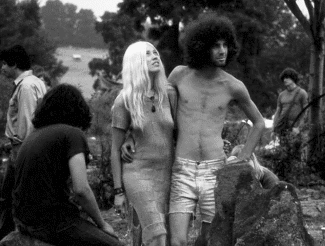
When I got married -- that I did early, as soon as I turned eighteen. I liked the girl I was with at the time, and couldn’t see any reason why I would be changing my mind about her anytime soon, so I proposed to her as we were standing on the side of a road, hitchhiking. I was right about her. She was crazy about me, and I would never have to wonder if somebody loved me again for the rest of my life. Nice to have that taken care of, since being unloved is the first sin, in my book.
We went to India, like all good hippies thirsting for Enlightenment in those days, flying Icelandic Air for $225 round trip to Luxembourg, whence we hitched to Munich, whence we trained to Istanbul with a short and bureaucratically perilous detour through Yugoslavia, a country for which we did not have a visa, but where we found ourselves due to an embarkation error somewhere along the train line. Fortunately, Yugoslavian police had sense of humanity, problem did not blossom into international incident, and we made it to Istanbul without even paying bribe. Also had some good meat strudel in the city of Mnic.

At one time it had been easy to go overland to India in a helter skelter fashion, getting your visa for Turkey in Istanbul, getting your visa for Iran in Turkey, getting your visa for Afghanistan in Iran, getting your visa for Pakistan in Afghanistan, and finally getting your visa for India in Pakistan. It was still possible when we did it, because we did it, but it wasn’t quite as easy as it had been. We had to wait weeks in each place, and waiting for a visa isn’t quite like vacationing in the country. You keep going back to the same government building again and again, to see the same bureaucrats, and it’s not like a leisure activity at all.

People were used to us, too. They were like bored of us. Oh, hippies. You guys have no money. You want drugs. Your women are young and beautiful, they dress like whores, but you won’t sell them to us. What are you good for? By the time we got to India, it was like. Oh, hippies. You want religion. What does religion mean to you? It is one more trinket? Our religion is precious to us. Go away. We already sent the type of guru you are looking for to California. Go there. That is where you will find him.

We also got to the land late. As in, “I gotta get back to the land and set my soul free,” the promised land of Woodstock as prophesied by Joni Mitchell in her song of that name. As Joni observed, “by the time we got to Woodstock, we were half a million strong,” and thus there were plenty of older hippies ahead of us, and the communes were kinda booked up when my wife and I showed up, all wide-eyed and innocent. Instead of utopias, what we got were little feudopias where everyone swore allegiance to the land, and those who owned the land got the best mates and sleeping quarters. Psychologically, these communities conceived of themselves as Camelots, but came across more as Peyton Place with beads and feathers. There was usually some kind of feud going on over some point of procedure or access to amenities or failed gardening enterprise.

I even got to the law late. Like how could that be? Are there seasons in the law? Yes. There was a pretty cool time in the law of the United States, about ten years before I got to law school. The Warren Court criminal procedure decisions hadn’t yet been rendered nullities by decades of reactionary retrenchment. Tort law had been expanded to give meaningful remedies to people injured by defective products. Consumer law was generally understood to be intended to actually benefit consumers. Contracts had to be read and signed to be enforceable. An atmosphere of common sense emanates from many of the judicial decisions of the late sixties and through the seventies.

By the time I got into the courts and offices where law practice happens, the impact of the Reagan judicial appointments, the rhetoric of tort reform, the anti-trial-lawyer sentiment, and the law-and-economics movement had created a strong counterforce that was undermining all that commendable progress that I’d learned about in law school. Now, twenty-six years later, only a hollowed-out husk remains of the robust structure of rights and protections that made citizenship meaningful. An unread clickwrap agreement is as enforceable as the most solemnly-signed agreement. There’s no time to read, and much need for the protection contracts give the corporate lucre-lords. Indeed, most legislation is passed without ever having been read by the Congress and the state legislatures, the product of lobbyist-draftsmen who write the law the corporations pay to see go on the books. To go to the courts with idealism in your heart is to ally your fortunes with those whose failure is pre-ordained. If you wish to rise, serve the powerful without scruple.

I arrived late to the dot-com era, in 1999, when almost all of the IPOs had already blasted off. I got on the first dot-com that would have me: Sex.Com. Thereafter, for years I was believed to be either counting my money or marooned in orbit with scantily-attired shipmates. Neither was true. I wrote all about it in my book The Sex.Com Chronicles, a tale of legal intrigue that my agent dubbed “the best book I couldn’t sell.”
Now I have totally missed out on Silk Road and its kingpin, the Dread Pirate Roberts. I knew the scene was going down because a client put me onto Bitcoin, and Silk Road was, as all the world now knows, Bitcoin-powered. I am inured to having my entire life examined in minute detail, and far too technologically lazy to bother wrapping my nonexistent privacy in a cloak of TOR. Hell, I can barely stand going to Second Life. I could never be bothered with Silk Road.
I have missed out on most of the big drug markets in my life, but I did once buy some putative mescaline at Cortez Park, an open-air psychedelic supermarket in the far northern reaches of the Phoenix suburbs. It was exhilarating seeing all that felonious activity right at hand. We came in a carload, and got our caps of mesc about as fast as we'd get tacos at Jack in the Box. Then we plunged into the safety of the dark desert with a reliable driver who wasn’t tripping. He was schizophrenic, though, so we all felt comfortable together and enjoyed a walk deep into the desert, following the power lines. You can’t get lost as long as you remember what direction you were going. Probably anyone these days would tell you what we did was dangerous – people get lost in the desert and die all the time, in broad daylight, much less tripping in the dark. But danger was the last thing on our minds.
Nowadays, people buy drugs without leaving their computer. They get high in the comfort of their dorm rooms. They might get overheated at a rave, but probably won’t be found wandering through the wilderness tripping at night. But the online wilderness poses a serious threat to their safety and health. Although DPR isn’t being depicted as a victim of FBI entrapment, he is. Because it’s always easier to engineer guilt than to investigate crime, the FBI twice sent provocateurs to ensnare DPR with blackmail threats. DPR, trapped inside his own mind, fell into the role of criminal mastermind. At that point, he was playing a game against a far greater criminal mastermind – Hoover’s Bureau. They cooked him with exquisite care, and he was thoroughly roasted. It is a tragic story, with only one real victim – DPR himself.

At this point, it’s obvious someone should have been selling collectibles – I keep seeing a Physical Bitcoin with a silk-laden camel on it, with a palm and a pyramid in the background. On the other side, what else but the classic image of the original Dread Pirate Roberts? When you think about it, it’s not too late to strike a commemorative Physical Bitcoin to honor what was once four percent of the Bitcoin economy. Put together a crew to push that on Kickstarter, eh?

Of course no one will be doing that. This is one cool, high-tech thing that people do not want to be associated with. The early adopters who had Bitcoins confiscated in the seizure of Silk Road are wondering if they’re going to get some undesired attention from law enforcement. Apparently, Bitcoin leaves a lot more of a trail than good old cash, the stuff that greases your average black economy. It’s unlikely that the FBI will dig all that deeply into the implications of the data they’ve seized. With a big fish like DPR to fry, a substantial cadre of agents will go into trial preparation mode, characterized by serious overtime billing. That will take the edge off any further investigation. We presume. But if you get that call from the Bureau, or someone who might be the Bureau, just remember, you can always call a lawyer first.
by Charles Carreon
October 6, 2013

I got to Haight Ashbury in 1968. The Summer of Love was 1967. I couldn’t help it. I rushed. I was only twelve when I ran away, but run I did, to where the sign flashing “LSD” could be seen, irrigating the brains of a new generation that had no need of footwear. The LSD was still flowing, for those who wanted it, and although speed was said to have killed the scene already, among the embers I found some glowing coals, enough to give light to my own brain. So I caught the flight I’d been aiming for, and even went to a Grateful Dead show at Speedway Meadows, where I passed out after a paper cupful of Red Mountain. The littlest hippie slept through his first acid rock concert.
But I’d missed it. The scene. The explosion of radiant color and psychedelic design that transformed art, style, clothing and architecture had already pulsed out of the Haight like a plasma wave from a supernova, blasting the entire country with a jolt of creativity. There were only remnants of the blast left visible in empty storefonts where headshops and utopia-incubators had once exhibited their mad splendor. It felt like a carnival had come through town and stolen the kids, leaving behind dazed hangers-on who were still trying to figure out where everyone had teleported.

When I got married -- that I did early, as soon as I turned eighteen. I liked the girl I was with at the time, and couldn’t see any reason why I would be changing my mind about her anytime soon, so I proposed to her as we were standing on the side of a road, hitchhiking. I was right about her. She was crazy about me, and I would never have to wonder if somebody loved me again for the rest of my life. Nice to have that taken care of, since being unloved is the first sin, in my book.
We went to India, like all good hippies thirsting for Enlightenment in those days, flying Icelandic Air for $225 round trip to Luxembourg, whence we hitched to Munich, whence we trained to Istanbul with a short and bureaucratically perilous detour through Yugoslavia, a country for which we did not have a visa, but where we found ourselves due to an embarkation error somewhere along the train line. Fortunately, Yugoslavian police had sense of humanity, problem did not blossom into international incident, and we made it to Istanbul without even paying bribe. Also had some good meat strudel in the city of Mnic.

At one time it had been easy to go overland to India in a helter skelter fashion, getting your visa for Turkey in Istanbul, getting your visa for Iran in Turkey, getting your visa for Afghanistan in Iran, getting your visa for Pakistan in Afghanistan, and finally getting your visa for India in Pakistan. It was still possible when we did it, because we did it, but it wasn’t quite as easy as it had been. We had to wait weeks in each place, and waiting for a visa isn’t quite like vacationing in the country. You keep going back to the same government building again and again, to see the same bureaucrats, and it’s not like a leisure activity at all.

People were used to us, too. They were like bored of us. Oh, hippies. You guys have no money. You want drugs. Your women are young and beautiful, they dress like whores, but you won’t sell them to us. What are you good for? By the time we got to India, it was like. Oh, hippies. You want religion. What does religion mean to you? It is one more trinket? Our religion is precious to us. Go away. We already sent the type of guru you are looking for to California. Go there. That is where you will find him.

We also got to the land late. As in, “I gotta get back to the land and set my soul free,” the promised land of Woodstock as prophesied by Joni Mitchell in her song of that name. As Joni observed, “by the time we got to Woodstock, we were half a million strong,” and thus there were plenty of older hippies ahead of us, and the communes were kinda booked up when my wife and I showed up, all wide-eyed and innocent. Instead of utopias, what we got were little feudopias where everyone swore allegiance to the land, and those who owned the land got the best mates and sleeping quarters. Psychologically, these communities conceived of themselves as Camelots, but came across more as Peyton Place with beads and feathers. There was usually some kind of feud going on over some point of procedure or access to amenities or failed gardening enterprise.

I even got to the law late. Like how could that be? Are there seasons in the law? Yes. There was a pretty cool time in the law of the United States, about ten years before I got to law school. The Warren Court criminal procedure decisions hadn’t yet been rendered nullities by decades of reactionary retrenchment. Tort law had been expanded to give meaningful remedies to people injured by defective products. Consumer law was generally understood to be intended to actually benefit consumers. Contracts had to be read and signed to be enforceable. An atmosphere of common sense emanates from many of the judicial decisions of the late sixties and through the seventies.

By the time I got into the courts and offices where law practice happens, the impact of the Reagan judicial appointments, the rhetoric of tort reform, the anti-trial-lawyer sentiment, and the law-and-economics movement had created a strong counterforce that was undermining all that commendable progress that I’d learned about in law school. Now, twenty-six years later, only a hollowed-out husk remains of the robust structure of rights and protections that made citizenship meaningful. An unread clickwrap agreement is as enforceable as the most solemnly-signed agreement. There’s no time to read, and much need for the protection contracts give the corporate lucre-lords. Indeed, most legislation is passed without ever having been read by the Congress and the state legislatures, the product of lobbyist-draftsmen who write the law the corporations pay to see go on the books. To go to the courts with idealism in your heart is to ally your fortunes with those whose failure is pre-ordained. If you wish to rise, serve the powerful without scruple.

I arrived late to the dot-com era, in 1999, when almost all of the IPOs had already blasted off. I got on the first dot-com that would have me: Sex.Com. Thereafter, for years I was believed to be either counting my money or marooned in orbit with scantily-attired shipmates. Neither was true. I wrote all about it in my book The Sex.Com Chronicles, a tale of legal intrigue that my agent dubbed “the best book I couldn’t sell.”
Now I have totally missed out on Silk Road and its kingpin, the Dread Pirate Roberts. I knew the scene was going down because a client put me onto Bitcoin, and Silk Road was, as all the world now knows, Bitcoin-powered. I am inured to having my entire life examined in minute detail, and far too technologically lazy to bother wrapping my nonexistent privacy in a cloak of TOR. Hell, I can barely stand going to Second Life. I could never be bothered with Silk Road.
I have missed out on most of the big drug markets in my life, but I did once buy some putative mescaline at Cortez Park, an open-air psychedelic supermarket in the far northern reaches of the Phoenix suburbs. It was exhilarating seeing all that felonious activity right at hand. We came in a carload, and got our caps of mesc about as fast as we'd get tacos at Jack in the Box. Then we plunged into the safety of the dark desert with a reliable driver who wasn’t tripping. He was schizophrenic, though, so we all felt comfortable together and enjoyed a walk deep into the desert, following the power lines. You can’t get lost as long as you remember what direction you were going. Probably anyone these days would tell you what we did was dangerous – people get lost in the desert and die all the time, in broad daylight, much less tripping in the dark. But danger was the last thing on our minds.
Nowadays, people buy drugs without leaving their computer. They get high in the comfort of their dorm rooms. They might get overheated at a rave, but probably won’t be found wandering through the wilderness tripping at night. But the online wilderness poses a serious threat to their safety and health. Although DPR isn’t being depicted as a victim of FBI entrapment, he is. Because it’s always easier to engineer guilt than to investigate crime, the FBI twice sent provocateurs to ensnare DPR with blackmail threats. DPR, trapped inside his own mind, fell into the role of criminal mastermind. At that point, he was playing a game against a far greater criminal mastermind – Hoover’s Bureau. They cooked him with exquisite care, and he was thoroughly roasted. It is a tragic story, with only one real victim – DPR himself.

At this point, it’s obvious someone should have been selling collectibles – I keep seeing a Physical Bitcoin with a silk-laden camel on it, with a palm and a pyramid in the background. On the other side, what else but the classic image of the original Dread Pirate Roberts? When you think about it, it’s not too late to strike a commemorative Physical Bitcoin to honor what was once four percent of the Bitcoin economy. Put together a crew to push that on Kickstarter, eh?

Of course no one will be doing that. This is one cool, high-tech thing that people do not want to be associated with. The early adopters who had Bitcoins confiscated in the seizure of Silk Road are wondering if they’re going to get some undesired attention from law enforcement. Apparently, Bitcoin leaves a lot more of a trail than good old cash, the stuff that greases your average black economy. It’s unlikely that the FBI will dig all that deeply into the implications of the data they’ve seized. With a big fish like DPR to fry, a substantial cadre of agents will go into trial preparation mode, characterized by serious overtime billing. That will take the edge off any further investigation. We presume. But if you get that call from the Bureau, or someone who might be the Bureau, just remember, you can always call a lawyer first.
- admin
- Site Admin
- Posts: 37697
- Joined: Thu Aug 01, 2013 5:21 am
Re: Charles Carreon, The Arizona Kid
Embarrassing Followers
by Charles Carreon
October 14, 2013
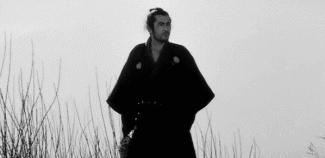
I was nineteen years old, barefoot in front of about a dozen tai chi students on the lawn in front of the most southern and traditional of the buildings on the ASU campus. I had learned tai chi from a woman at ASU, and after a couple of years of practice, and reading Al Huang’s beautiful book, “Embrace Tiger, Return to Mountain,” I decided to teach others. I joined movement instruction with guided visualization, and the students loved it. Attendance stayed high throughout the semester, and we even met for extra sessions on the campus lawns, as we were doing on this day.
One of my students was a handsome young lawyer named Kit, a refined gentleman in his thirties who had dark hair and a close-cropped dark beard. He gave off a slight whiff of superiority, while working gamely to relax the surface rigidity that infused his body. He always maintained a slightly aloof stance, and seemed quietly amused at my audacity in holding myself out as a tai chi teacher. At some point, he started to react negatively to something I had barely noticed, which was that by silent consensus, the group had adopted the view that whatever I said to do had to be done. This was necessary, in effect, because I often did interactive guided visualizations where, for example, half the people play yin roles, and half play yang roles, so people adapt to each other and perhaps fuse their energy fields.
So there we were on the lawn, doing one of these interactive visualization movements, where half of the students are passing imaginary energy-spheres to the other half of the students. Well, Kit declined to play his role. He adopted a stiff pose, and like Bartleby the Scrivener declaring that he “preferred not to,” stopped performing my instructions. It was an alarming development, Kit going on strike. His fellow spiritual laborers were shocked. Their eyes begged him to come to his senses, their bodies inclined toward him, their arms reached out, fingers extended, voices beseeching, trying to draw him back into the sacred labor. At the head of the group, I spoke to Kit like a man trying to lure a kitten out of a tree. Kit began backing away, I followed, and he broke into a semi-run. I and the entire group surged after him briefly, until a thought brought me up short — “This is not right. The tai chi class should not chase Kit around the campus. In fact, I think we are acting crazy.” Gesturing behind my back, I stopped the forward surge of my students, and told Kit to please feel free to go. After the obligatory exchanges of nonsense words that inevitably conclude such donnybrooks, he left.
I left off with giving public classes after other events occurred that confirmed I was having incipient cult problems. In those years, cults sprang up like dust devils in the heat, and the idea of having followers was beyond serious conception. While I read holy books in abundance, I was sifting these works for bliss-provoking illuminations, and understood ethics in a manner befitting a member of the organic-food/hippie subculture – in pretty broad strokes. I realized that while I could help people experience “meditative states,” I didn’t have much to offer those seeking spiritual insight beyond homilies lifted from holy books. So I could bullshit students or bow out of the teaching game. I chose to give it up.
Later in life, when I have received occasional spurts of admiration in my legal career, I have tried to ask myself, “Who is this person, and why do they like me?” Sometimes the answer has been, “I just got this guy a great deal and he’s going to get out of jail sooner than he’d hoped, so he’s momentarily filled with gratitude.” At such moments, often experienced in a jail consultation cell, I figured it was okay to bask in the glow. But you know, if you’re sitting in your office and you ask yourself who loves you, and your answer is “a bunch of felons,” then you might begin to feel like life was passing you by, and you should do something to acquire at least some friends with a more socially acceptable profile. That happened to me after five years of being a Federal public defender. I really felt like I needed to get out more, meet ordinary people, and think about something other than crime.
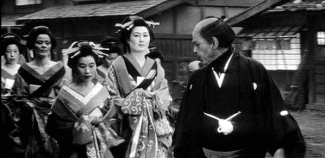
So I stopped taking criminal cases, and therefore spent less time thinking about crime. One has to think about something, however, and I ended up thinking about sex. That may have lead to me working on the Sex.Com case, which lead to representing pornographers, who can be somewhat embarrassing to represent. But times being what they are, most lawyers will agree to perform lawful services within their professional specialty when legal tender is offered in a sufficient amount, regardless of the source.
It has been said that I must have been hard up to take on FunnyJunk as a client, but that is a shot in the dark that misses its mark. Times were good when FunnyJunk came along, and I snagged the work happily, as someone who is always glad to get something new in the pipelines. To live is a dynamic flow, like flying a ram jet engine – the forward motion of the jet is essential to the functioning of the engines – or like a shark, that lacks gills and thus must cruise the depths continuously or die.
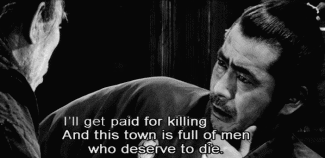
My work requires knowledge and skill, and I’ve gained some modest renown among those who know the quality of my work and the reliability of my advice. Those people seem to know other people, and thus, work arrives in time to meet some need and supply modest pleasures. I have a very short list of friends who say they like what I do in a creative way, so I inflict my works on them. I even get a heaping of adulation from my wife, balanced by savage recriminations of the most affectionate sort. So I’ve got all the friends I need.
You are incredulous, I see. How could I possibly have all the friends I need when I’m not even on Facebook? There you have it — a koan for the Social Media Buddhists.
I’m like the opposite of Popehat Ken White in this regard. He has many, many followers, and lots of them are chasing me. I know it’s not going to occur to Popehat, as it did to me, “This is wrong. Popehat followers should not chase Charles Carreon all over the Internet.” Not that I’m claiming to be superior. I was a much younger man then, nineteen, a far more intelligent time of life when it comes to realizing the obvious. And unlike Popehat, my youthful self had not spent a lifetime developing a legal philosophy to provide a cover story for personal indulgences.

Safe inside his cover story, Popehat is machinating like L. Ron Hubbard targeting suppressives. His head thrust against his periscope, he ceaselessly scans the sea for the latest foolish captain to pilot the S.S. Douchebag into his sights. “Fire 1! Fire 2!” A pause to gauge the effects, then, “We hit her amidships!” Popehat’s crew roars with triumph, and Popehat himself, oblivious to all but the delicious sensation of having his hindquarters laved by eager tongues, hoarsely exhorts his “army of Davids” to further reputational mayhem.
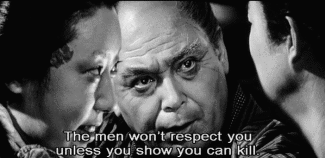
Popehat is an apologist for hate speech, and the proof is, he denies it proactively, while he invokes the First Amendment to protect hate speakers. Proactive denials are virtually always an admission of conscious wrongdoing.
Who pushes hate speech, now and in the past? Reactionaries. Right wingers. Their arguments are often nine-tenths verbal violence. They spew death threats, use rape metaphors, ascribe all manner of physical deformity and pathological mental states to their objects of hatred. When people victimized by these outrages try to speak up, the Free Speech Mafia, responding to the “Popehat signal” will rise to the defense of these loose-lipped spittle warriors by asserting that their hate speech was protected by the First Amendment. The Internet has turned into the type of small town where a group of bullies is terrorizing everyone, pushing everyone’s buttons and daring them to talk back.
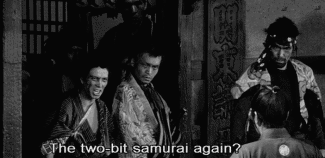
There’s been other times in my life when I’ve looked around at the quality of my associates, and realized it was time for a change. Popehat may have high-sounding explanations to justify his conduct, but in time, the luster of being Judge Lynch for the lynching crowd is going to be seen in a much clearer light. Like the Salem judges, that history has judged fairly, consigning them to the annals of judicial infamy, Popehat has established a legacy that would already cause the head of a feeling man to bow in shame.

_______________
Note:
All images screencaptured from “Yojimbo,” directed by Akira Kurosawa, copyright 1961 Toho Co., Ltd. English subtitled version copyright 2006 Toho International Co., Ltd.
by Charles Carreon
October 14, 2013

I was nineteen years old, barefoot in front of about a dozen tai chi students on the lawn in front of the most southern and traditional of the buildings on the ASU campus. I had learned tai chi from a woman at ASU, and after a couple of years of practice, and reading Al Huang’s beautiful book, “Embrace Tiger, Return to Mountain,” I decided to teach others. I joined movement instruction with guided visualization, and the students loved it. Attendance stayed high throughout the semester, and we even met for extra sessions on the campus lawns, as we were doing on this day.
One of my students was a handsome young lawyer named Kit, a refined gentleman in his thirties who had dark hair and a close-cropped dark beard. He gave off a slight whiff of superiority, while working gamely to relax the surface rigidity that infused his body. He always maintained a slightly aloof stance, and seemed quietly amused at my audacity in holding myself out as a tai chi teacher. At some point, he started to react negatively to something I had barely noticed, which was that by silent consensus, the group had adopted the view that whatever I said to do had to be done. This was necessary, in effect, because I often did interactive guided visualizations where, for example, half the people play yin roles, and half play yang roles, so people adapt to each other and perhaps fuse their energy fields.
So there we were on the lawn, doing one of these interactive visualization movements, where half of the students are passing imaginary energy-spheres to the other half of the students. Well, Kit declined to play his role. He adopted a stiff pose, and like Bartleby the Scrivener declaring that he “preferred not to,” stopped performing my instructions. It was an alarming development, Kit going on strike. His fellow spiritual laborers were shocked. Their eyes begged him to come to his senses, their bodies inclined toward him, their arms reached out, fingers extended, voices beseeching, trying to draw him back into the sacred labor. At the head of the group, I spoke to Kit like a man trying to lure a kitten out of a tree. Kit began backing away, I followed, and he broke into a semi-run. I and the entire group surged after him briefly, until a thought brought me up short — “This is not right. The tai chi class should not chase Kit around the campus. In fact, I think we are acting crazy.” Gesturing behind my back, I stopped the forward surge of my students, and told Kit to please feel free to go. After the obligatory exchanges of nonsense words that inevitably conclude such donnybrooks, he left.
I left off with giving public classes after other events occurred that confirmed I was having incipient cult problems. In those years, cults sprang up like dust devils in the heat, and the idea of having followers was beyond serious conception. While I read holy books in abundance, I was sifting these works for bliss-provoking illuminations, and understood ethics in a manner befitting a member of the organic-food/hippie subculture – in pretty broad strokes. I realized that while I could help people experience “meditative states,” I didn’t have much to offer those seeking spiritual insight beyond homilies lifted from holy books. So I could bullshit students or bow out of the teaching game. I chose to give it up.
Later in life, when I have received occasional spurts of admiration in my legal career, I have tried to ask myself, “Who is this person, and why do they like me?” Sometimes the answer has been, “I just got this guy a great deal and he’s going to get out of jail sooner than he’d hoped, so he’s momentarily filled with gratitude.” At such moments, often experienced in a jail consultation cell, I figured it was okay to bask in the glow. But you know, if you’re sitting in your office and you ask yourself who loves you, and your answer is “a bunch of felons,” then you might begin to feel like life was passing you by, and you should do something to acquire at least some friends with a more socially acceptable profile. That happened to me after five years of being a Federal public defender. I really felt like I needed to get out more, meet ordinary people, and think about something other than crime.

So I stopped taking criminal cases, and therefore spent less time thinking about crime. One has to think about something, however, and I ended up thinking about sex. That may have lead to me working on the Sex.Com case, which lead to representing pornographers, who can be somewhat embarrassing to represent. But times being what they are, most lawyers will agree to perform lawful services within their professional specialty when legal tender is offered in a sufficient amount, regardless of the source.
It has been said that I must have been hard up to take on FunnyJunk as a client, but that is a shot in the dark that misses its mark. Times were good when FunnyJunk came along, and I snagged the work happily, as someone who is always glad to get something new in the pipelines. To live is a dynamic flow, like flying a ram jet engine – the forward motion of the jet is essential to the functioning of the engines – or like a shark, that lacks gills and thus must cruise the depths continuously or die.

My work requires knowledge and skill, and I’ve gained some modest renown among those who know the quality of my work and the reliability of my advice. Those people seem to know other people, and thus, work arrives in time to meet some need and supply modest pleasures. I have a very short list of friends who say they like what I do in a creative way, so I inflict my works on them. I even get a heaping of adulation from my wife, balanced by savage recriminations of the most affectionate sort. So I’ve got all the friends I need.
You are incredulous, I see. How could I possibly have all the friends I need when I’m not even on Facebook? There you have it — a koan for the Social Media Buddhists.
I’m like the opposite of Popehat Ken White in this regard. He has many, many followers, and lots of them are chasing me. I know it’s not going to occur to Popehat, as it did to me, “This is wrong. Popehat followers should not chase Charles Carreon all over the Internet.” Not that I’m claiming to be superior. I was a much younger man then, nineteen, a far more intelligent time of life when it comes to realizing the obvious. And unlike Popehat, my youthful self had not spent a lifetime developing a legal philosophy to provide a cover story for personal indulgences.

Safe inside his cover story, Popehat is machinating like L. Ron Hubbard targeting suppressives. His head thrust against his periscope, he ceaselessly scans the sea for the latest foolish captain to pilot the S.S. Douchebag into his sights. “Fire 1! Fire 2!” A pause to gauge the effects, then, “We hit her amidships!” Popehat’s crew roars with triumph, and Popehat himself, oblivious to all but the delicious sensation of having his hindquarters laved by eager tongues, hoarsely exhorts his “army of Davids” to further reputational mayhem.

Popehat is an apologist for hate speech, and the proof is, he denies it proactively, while he invokes the First Amendment to protect hate speakers. Proactive denials are virtually always an admission of conscious wrongdoing.
Who pushes hate speech, now and in the past? Reactionaries. Right wingers. Their arguments are often nine-tenths verbal violence. They spew death threats, use rape metaphors, ascribe all manner of physical deformity and pathological mental states to their objects of hatred. When people victimized by these outrages try to speak up, the Free Speech Mafia, responding to the “Popehat signal” will rise to the defense of these loose-lipped spittle warriors by asserting that their hate speech was protected by the First Amendment. The Internet has turned into the type of small town where a group of bullies is terrorizing everyone, pushing everyone’s buttons and daring them to talk back.

There’s been other times in my life when I’ve looked around at the quality of my associates, and realized it was time for a change. Popehat may have high-sounding explanations to justify his conduct, but in time, the luster of being Judge Lynch for the lynching crowd is going to be seen in a much clearer light. Like the Salem judges, that history has judged fairly, consigning them to the annals of judicial infamy, Popehat has established a legacy that would already cause the head of a feeling man to bow in shame.

_______________
Note:
All images screencaptured from “Yojimbo,” directed by Akira Kurosawa, copyright 1961 Toho Co., Ltd. English subtitled version copyright 2006 Toho International Co., Ltd.
- admin
- Site Admin
- Posts: 37697
- Joined: Thu Aug 01, 2013 5:21 am
Return to Carry On with Carreon
Who is online
Users browsing this forum: No registered users and 112 guests
